Why you can trust Tom's Hardware
Productivity Benchmarks on Intel Core i9-13900KS — The TLDR:
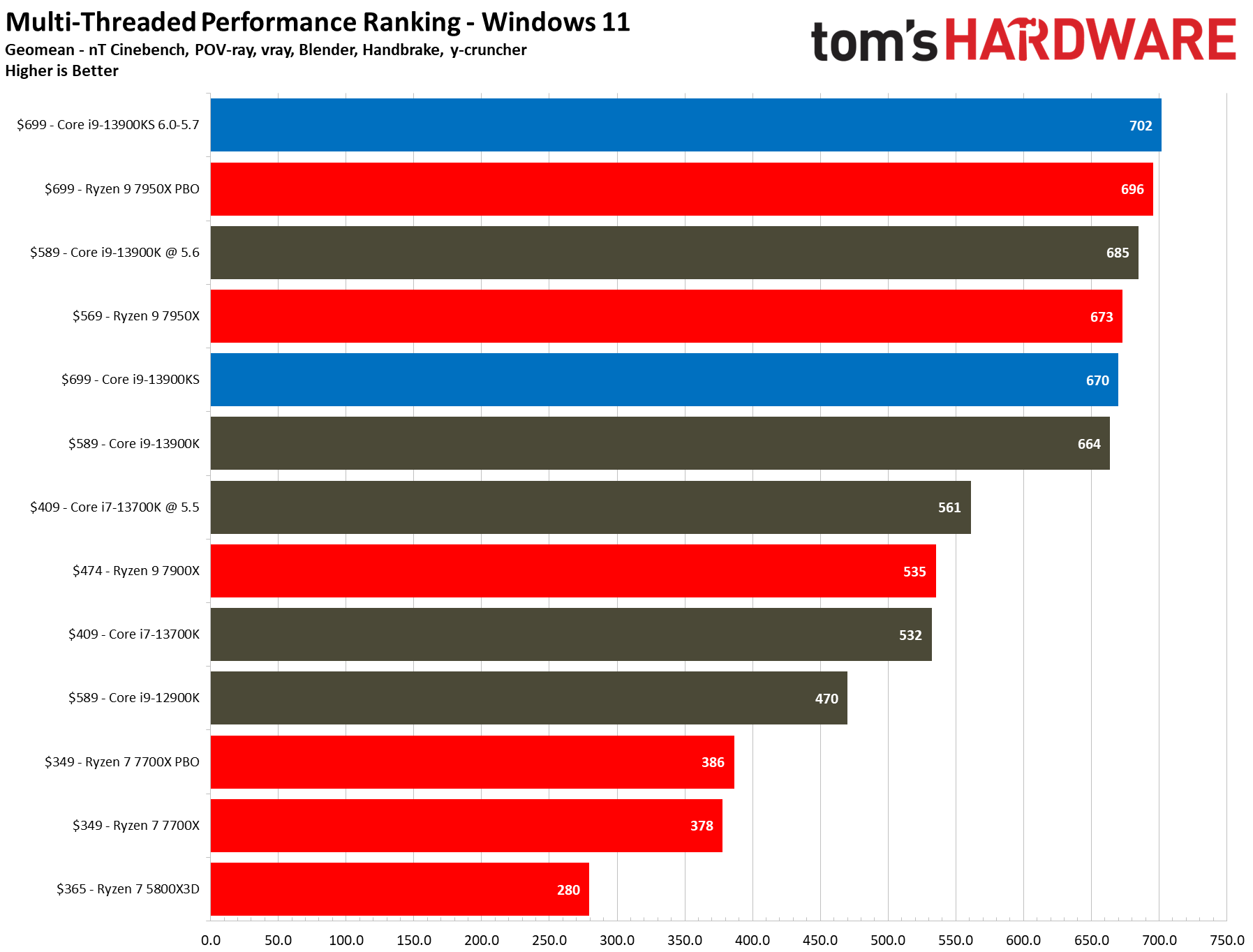
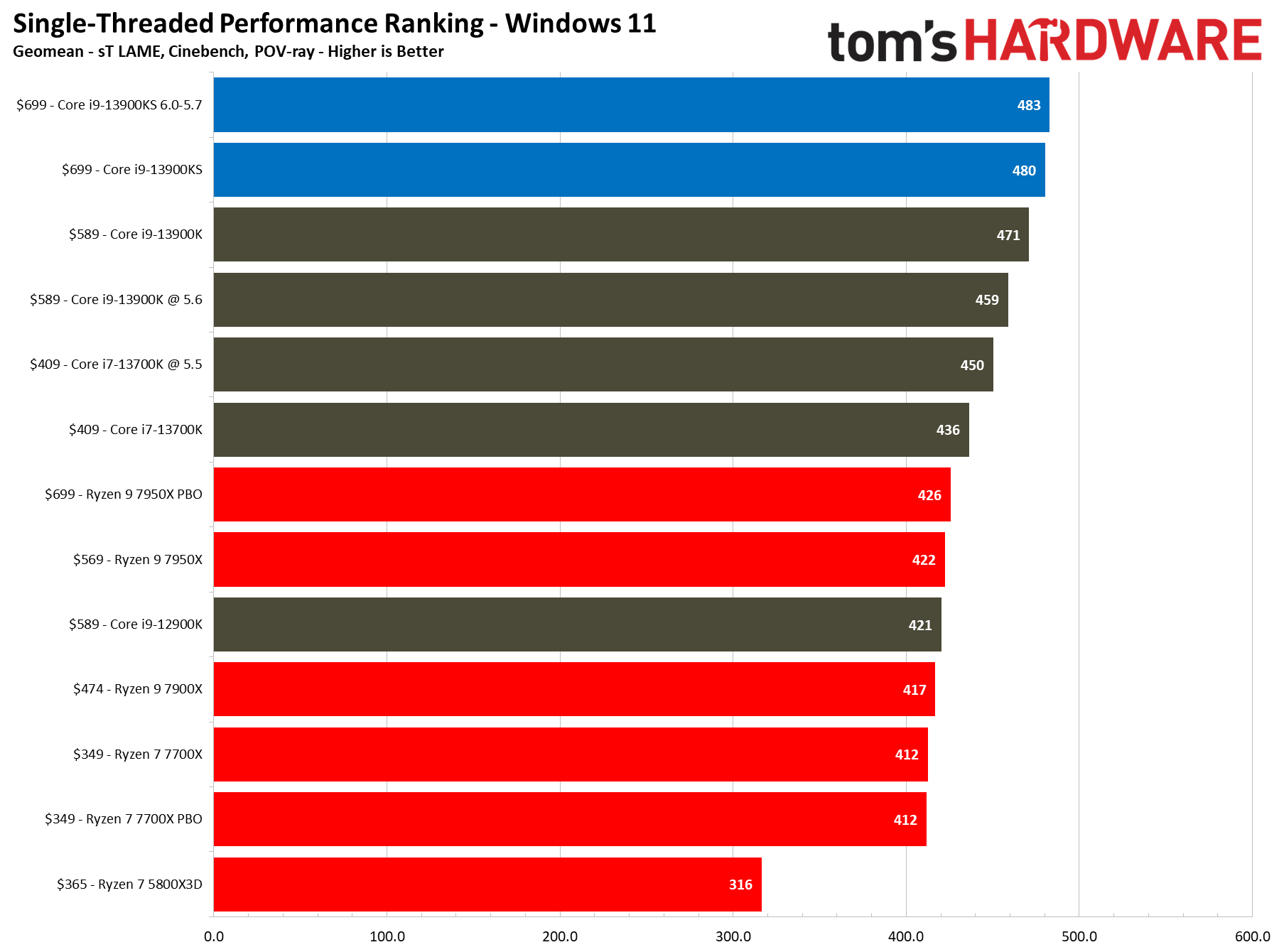
We can boil down productivity application performance into two broad categories: single- and multi-threaded. These slides show the geometric mean of performance in several of our most important tests in each category, but be sure to look at the expanded results below.
Overall the same general trends that we saw in our gaming benchmarks appear in our application testing — the Core i9-13900KS does nothing to change the competitive positioning against AMD's Ryzen, and while the 13900KS is the fastest chip in the world in both single- and multi-threaded work after overclocking, its high price tag makes the slight gains simply not worth it.
The Ryzen 9 7950X clings to its lead in multi-threaded work over the Core i9-13900KS by a mere 0.5%, but that's in the noise of the benchmarks. We should consider these two chips tied. Overclocking flips the advantage back in Intel's favor, but this is also close enough to call a tie. We also see slight gains over the Core i9-13900K in multi-threaded work, but this isn't worth the increased pricing.
Flipping over to single-threaded work reveals that the 13900KS holds a clear win over all contenders — it is 14% faster than the Ryzen 9 7950X and 2% faster than the standard 13900K. Still, that's a relatively slim delta over the standard 13900K.
You'll have to accept severe performance tradeoffs if you opt for AMD's fastest gaming chip, the Ryzen 7 5800X3D. The 5800X3D is significantly slower than the newer chips because it comes with the previous-gen Zen 3 architecture. The extra dollop of L3 cache doesn't impart any meaningful speedups in most standard desktop PC applications. If you're looking for an X3D chip, wait for the 7000X3D chips that launch next month.
| Tom's Hardware | Multi-Thread | Single-Thread |
| $699 — Core i9-13900KS / OC | 100% / 104% | 100% / 101% |
| $589 — Core i9-13900K / OC | 99% / 102% | 98% / 96% |
| $569 — Ryzen 9 7950X / OC | 100% / 103% | 88% / 89% |
| $409 — Core i7-13700K / OC | 79% / 83% | 91% / 94% |
| $474 — Ryzen 9 7900X | 80% | 87% |
| $349 — Ryzen 7 7700X / OC | 56% / 57% | 86% / 86% |
| $365 — Ryzen 7 5800X3D | 42% | 66% |
Rendering Benchmarks on Intel Core i9-13900KS
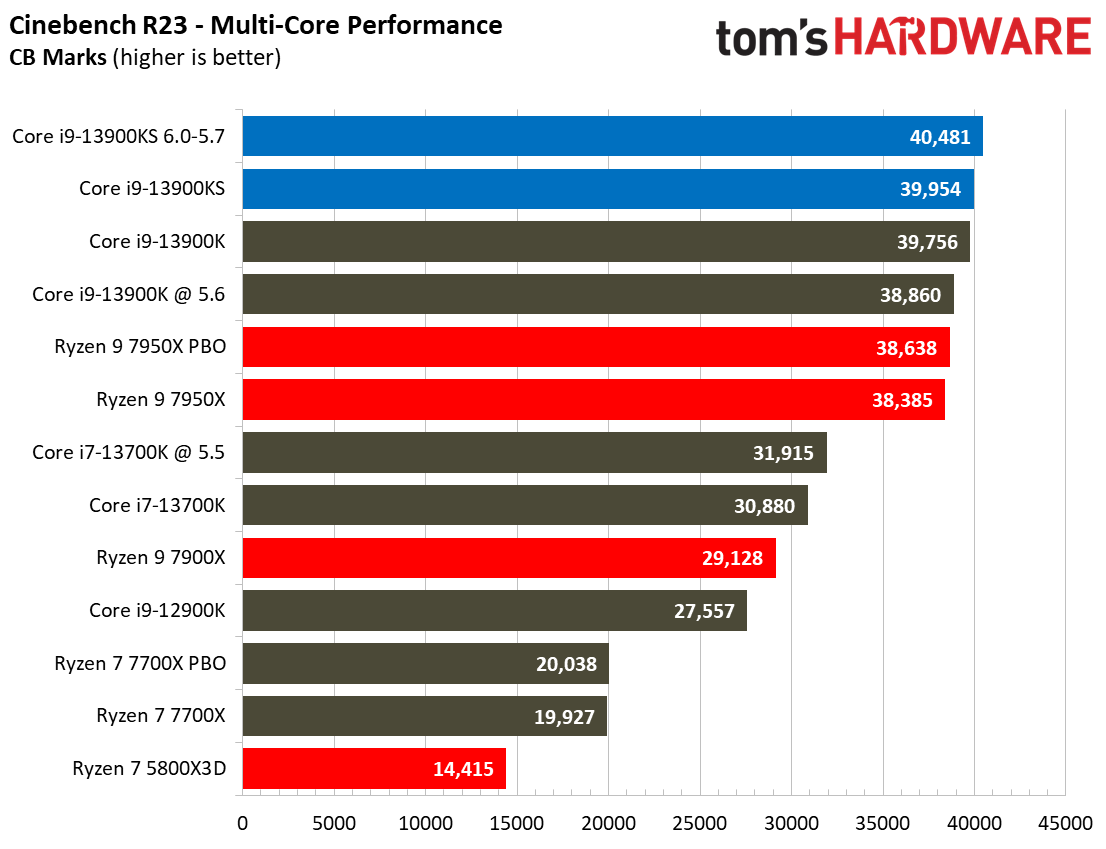
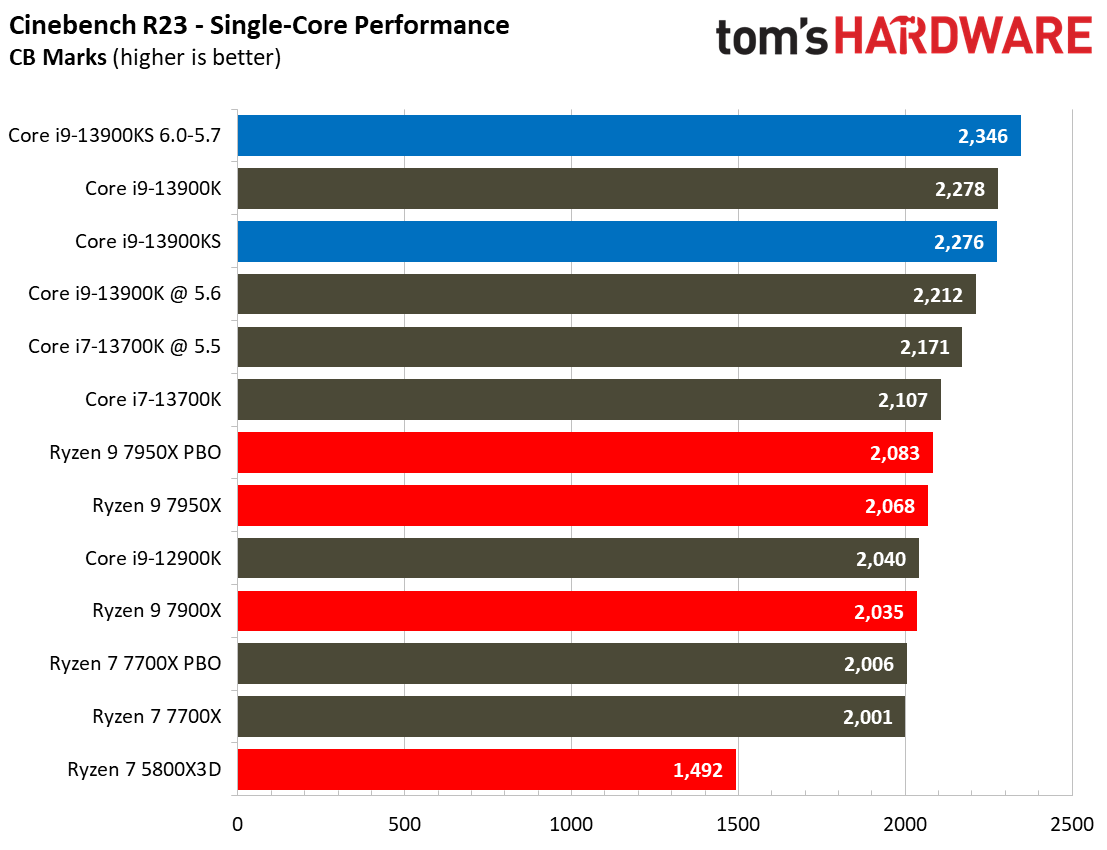
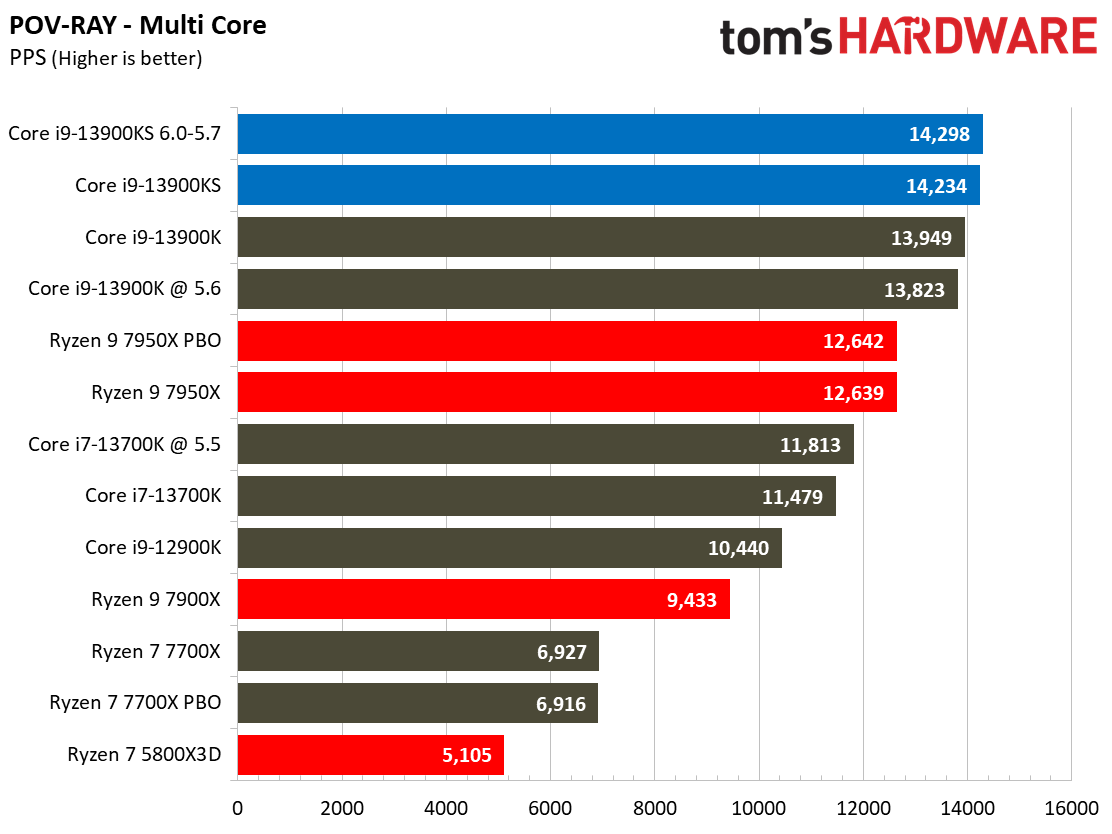
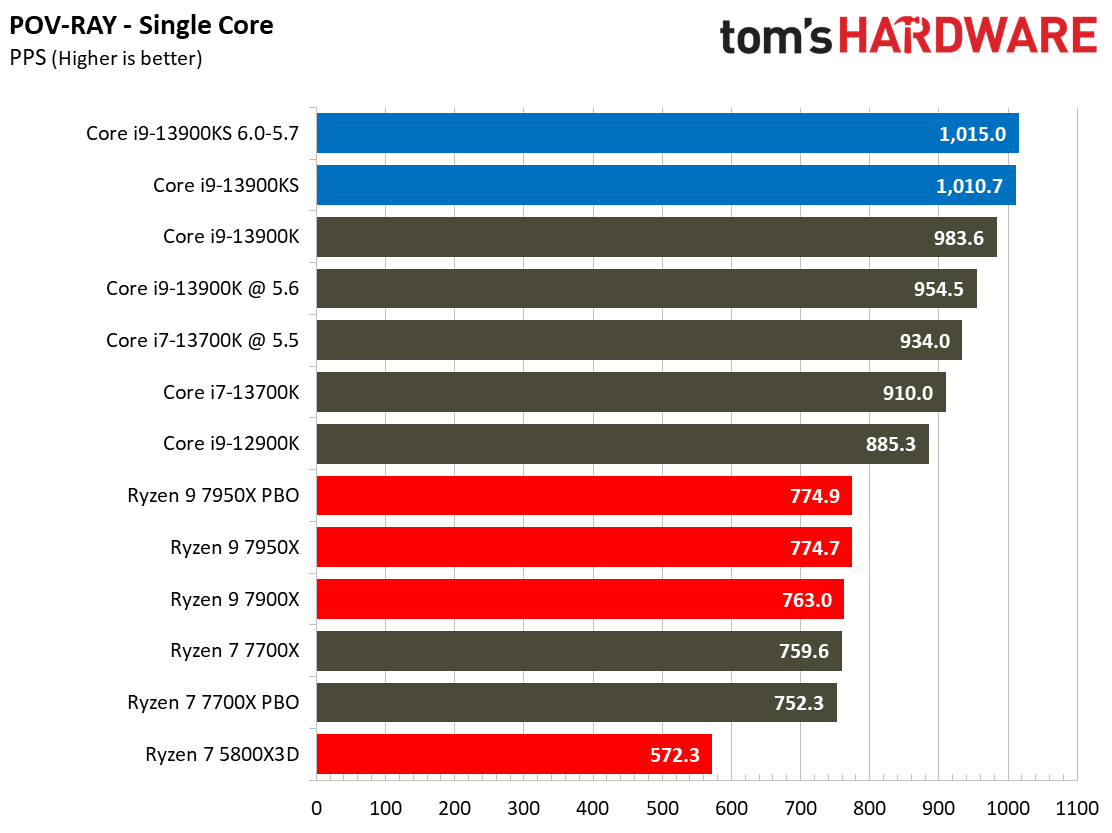
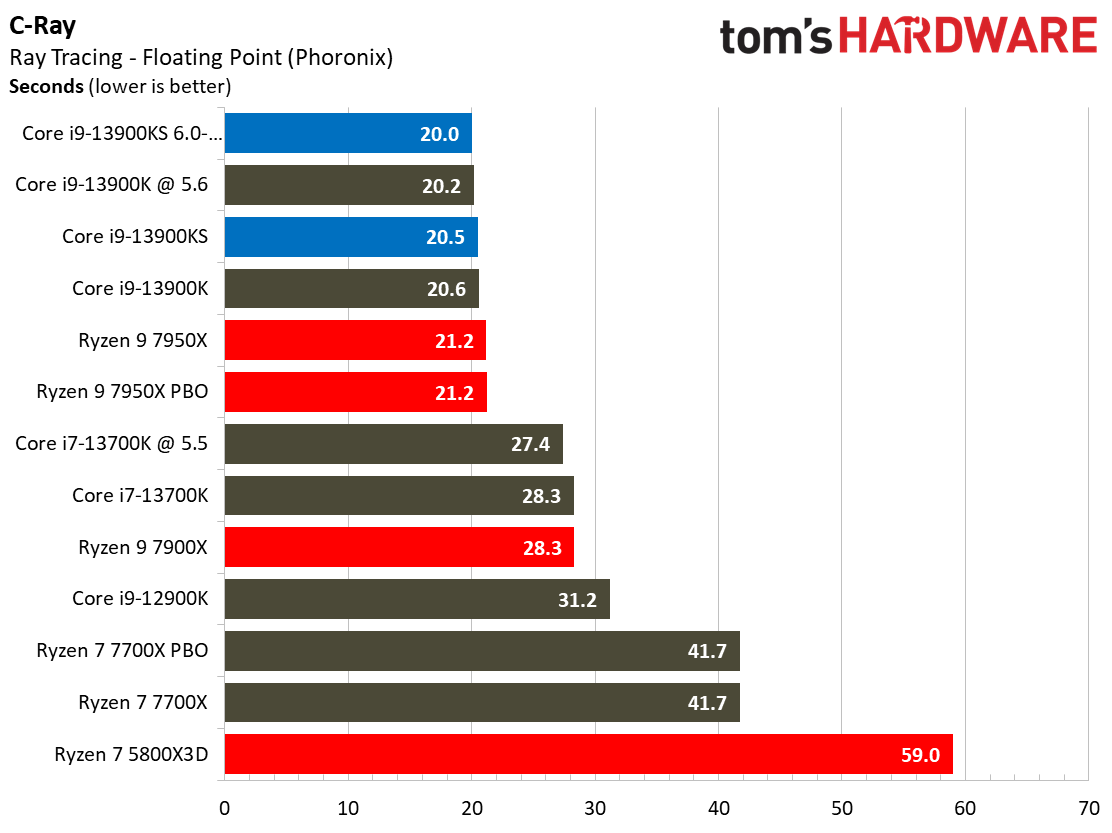
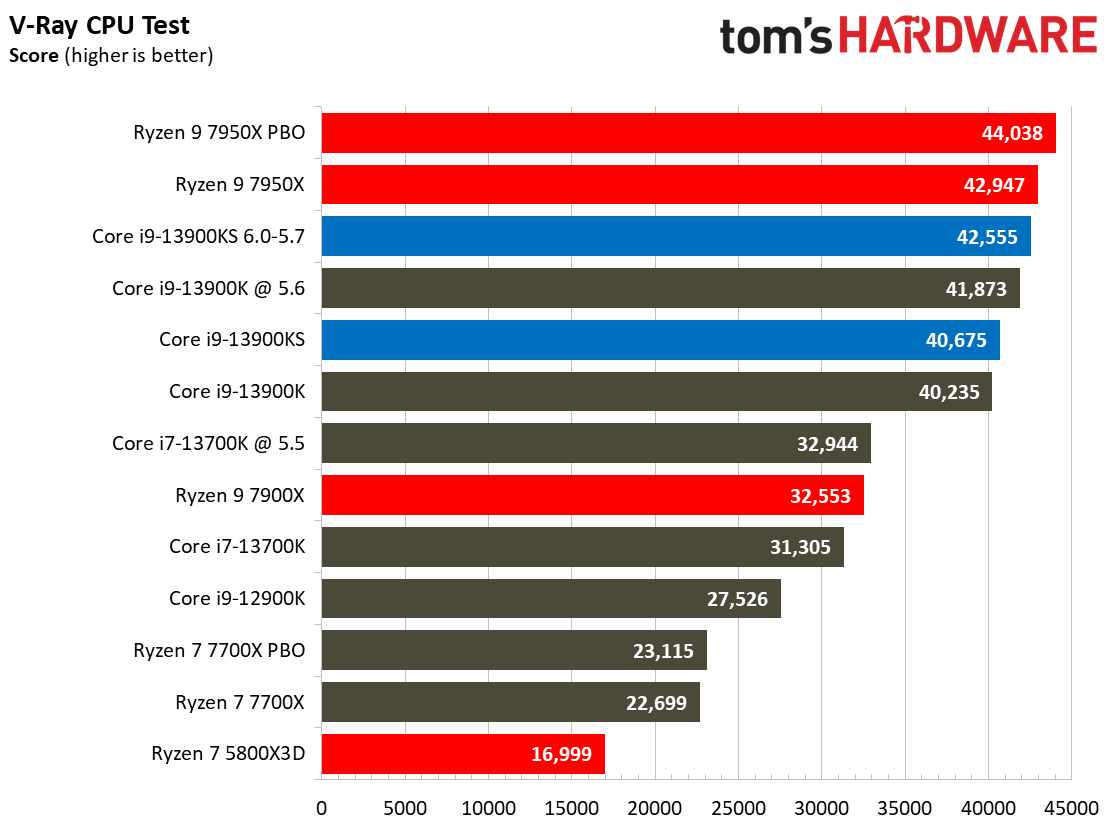
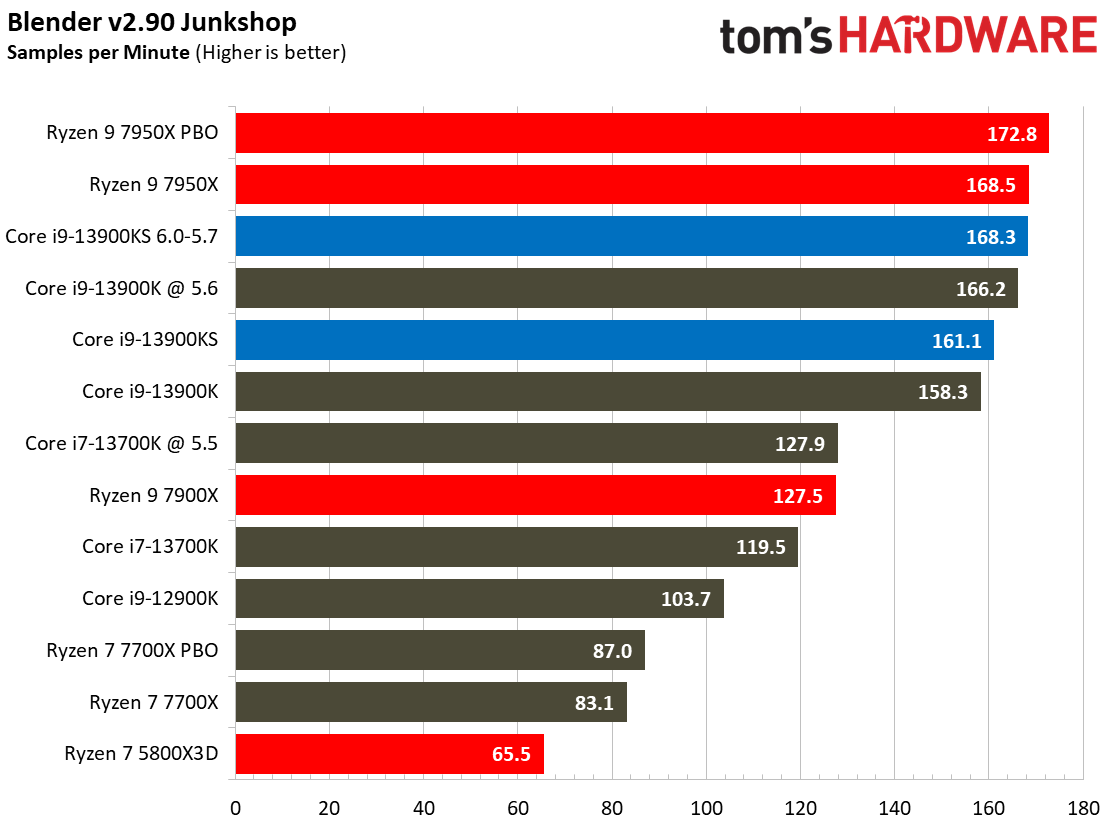
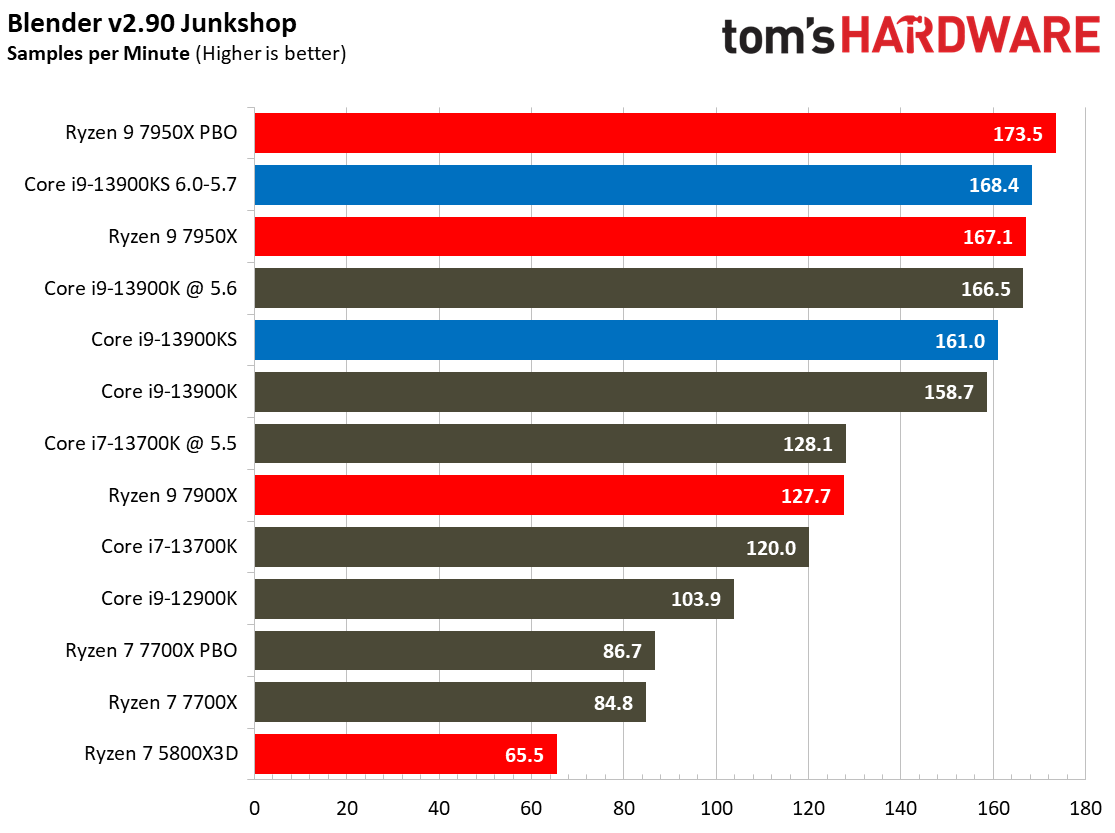
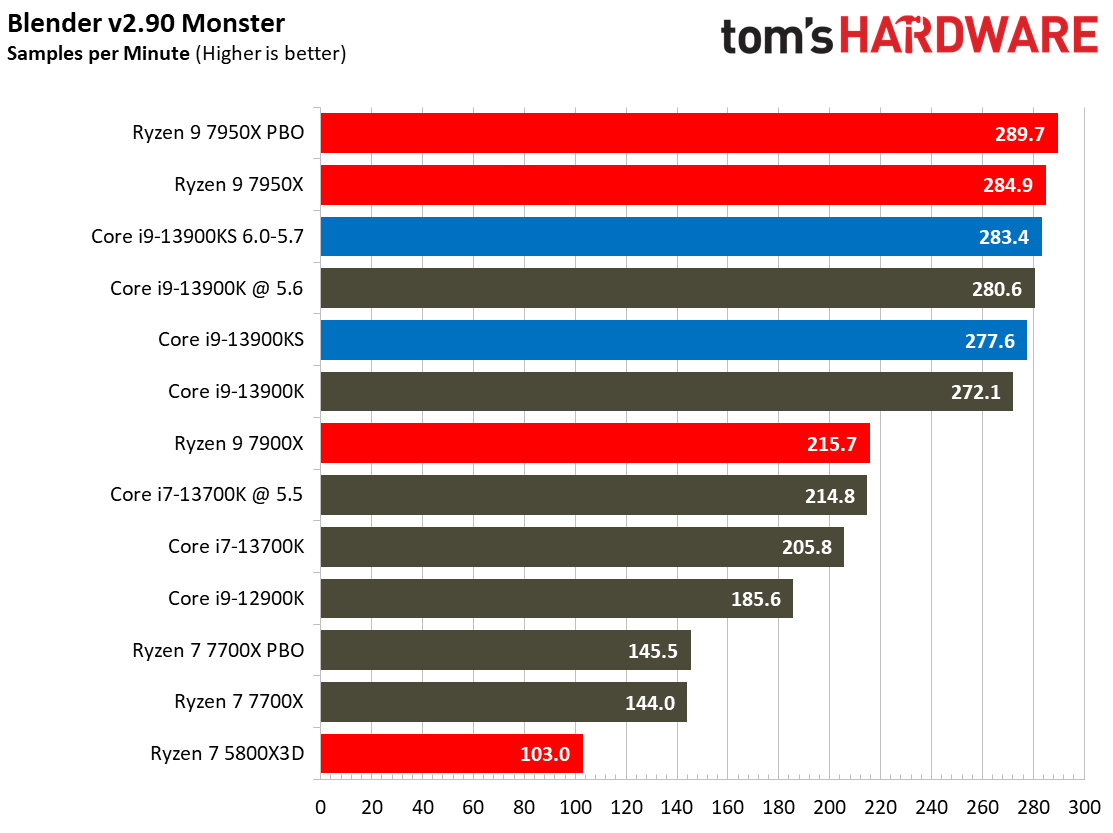
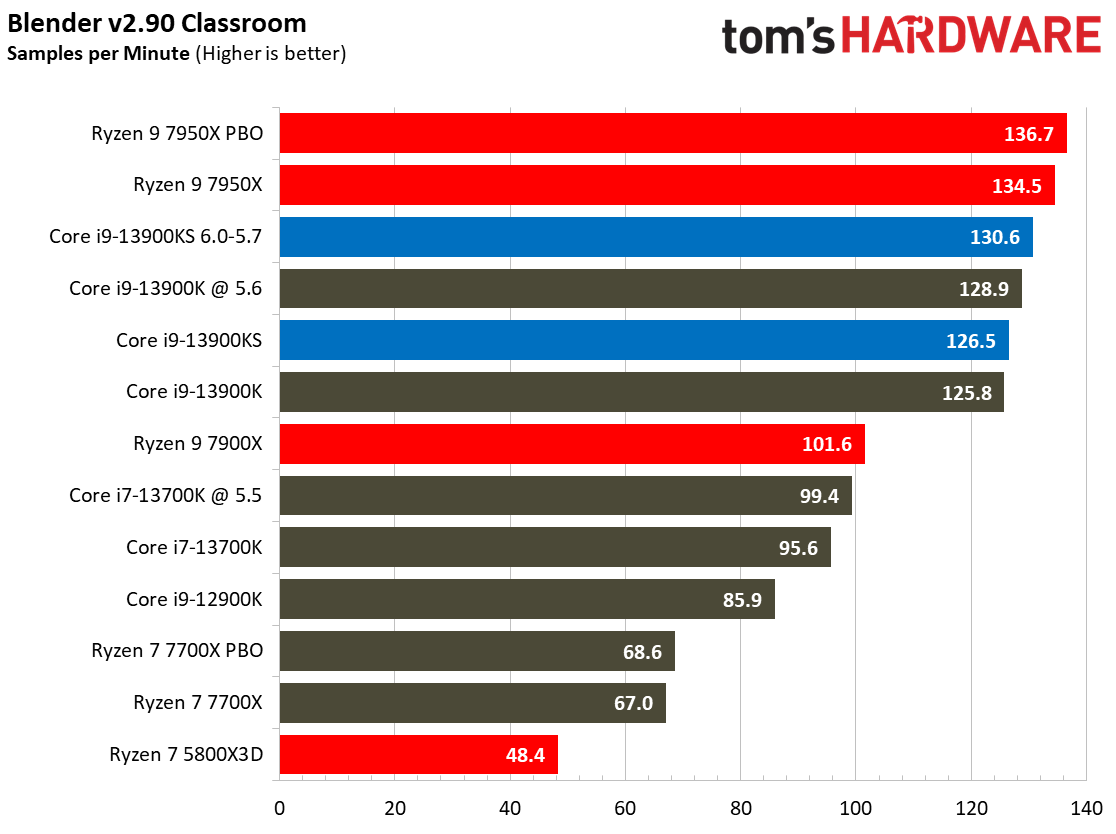
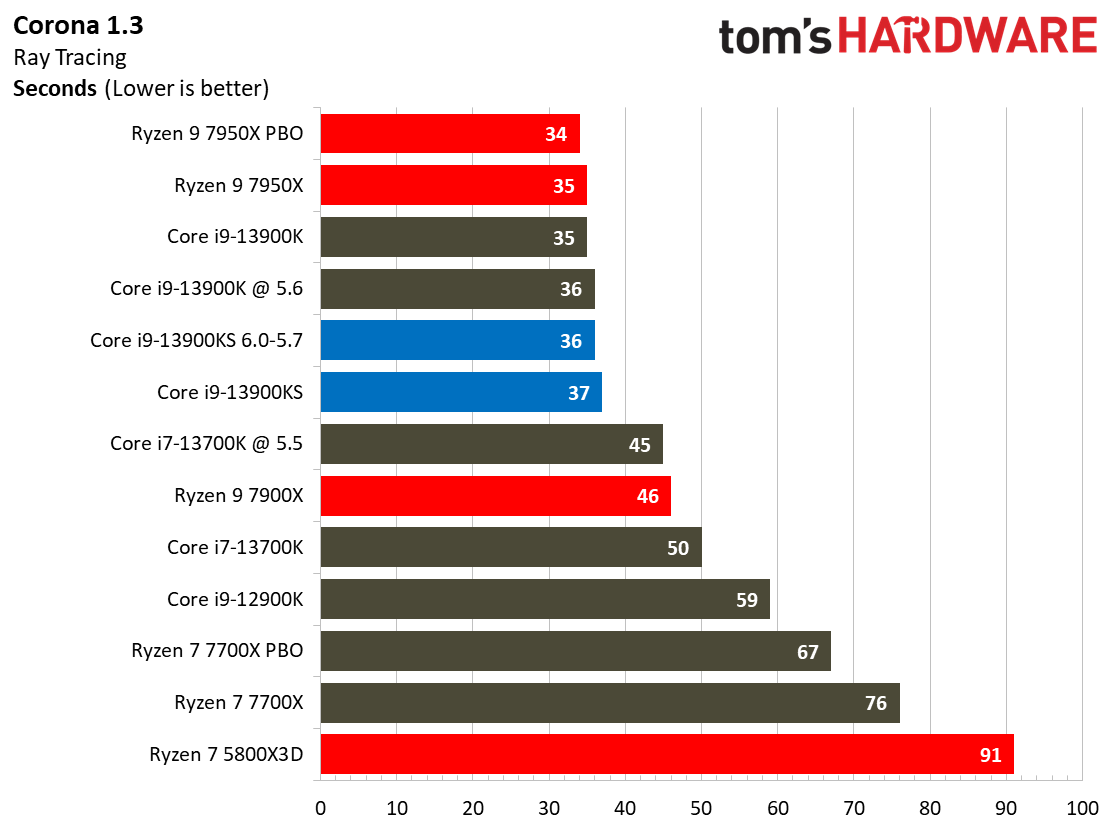
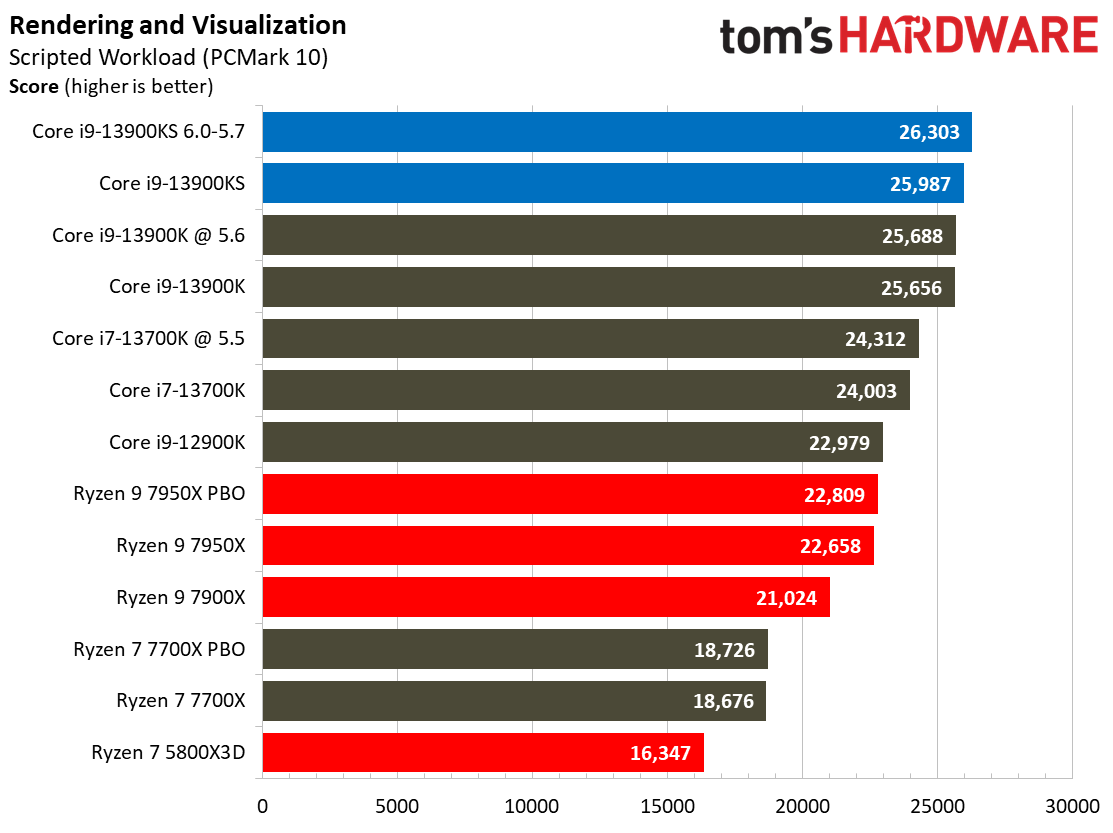
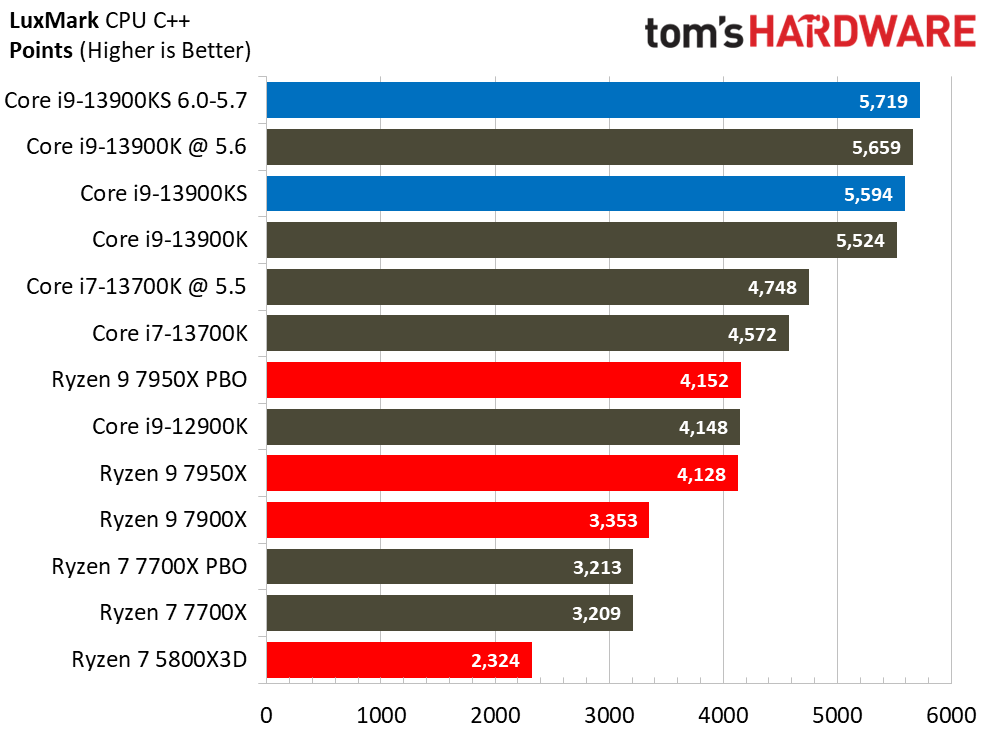
Intel's Raptor Lake rivals or beats AMD's finest in multi-threaded productivity applications at every price point. These results, like many of the results throughout our other application tests below, mirror the established trends of the KS slightly extending the lead relative to the 13900K. As such, we'll have limited commentary for the application benchmarks.
Encoding Benchmarks on Intel Core i9-13900KS
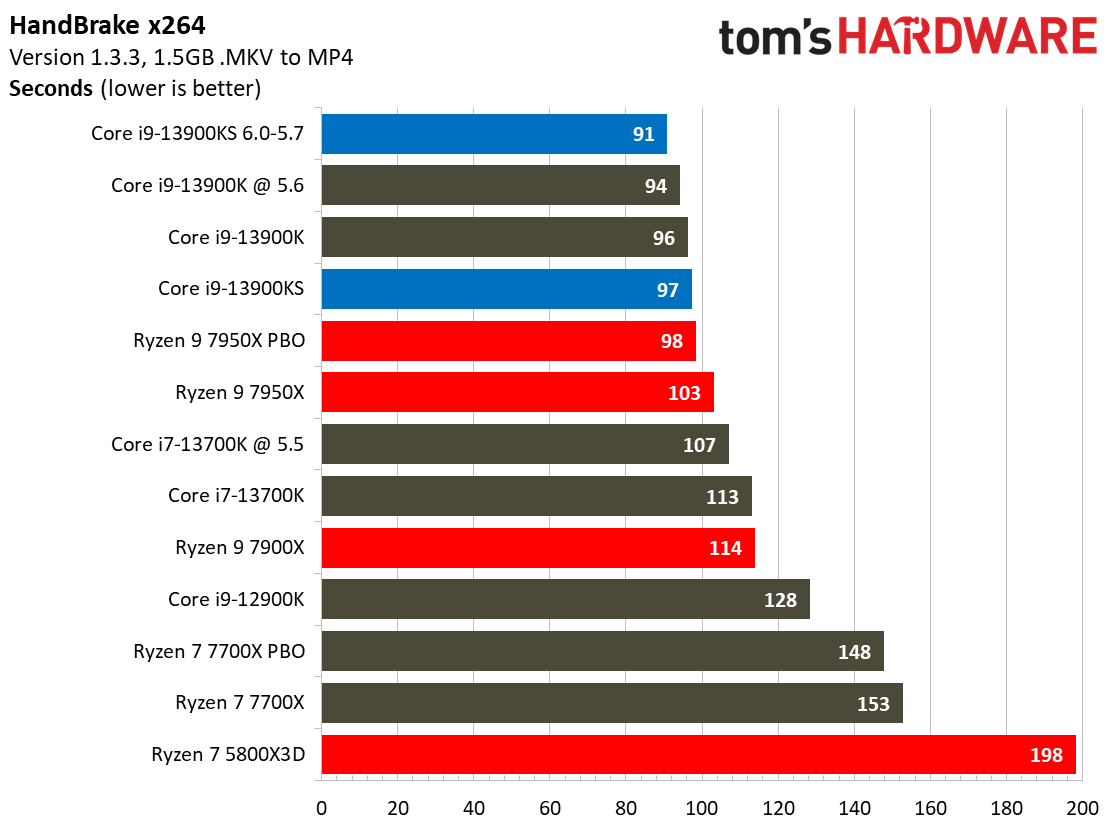
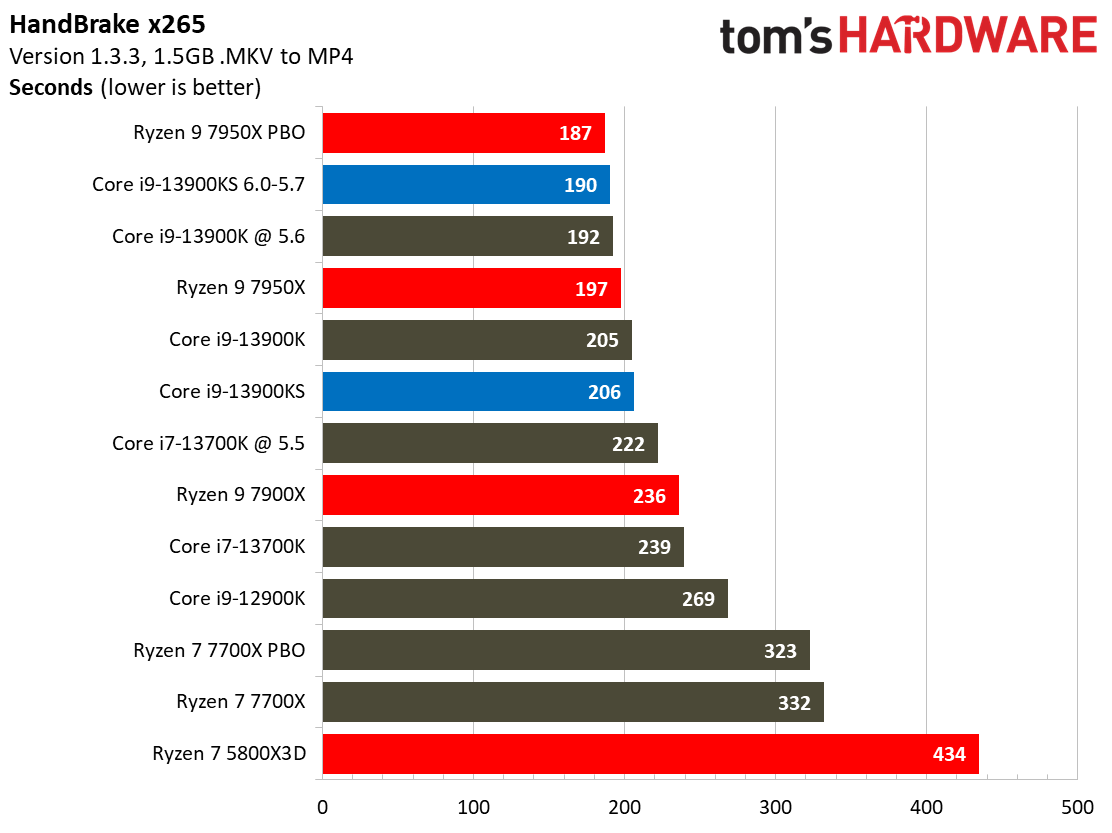
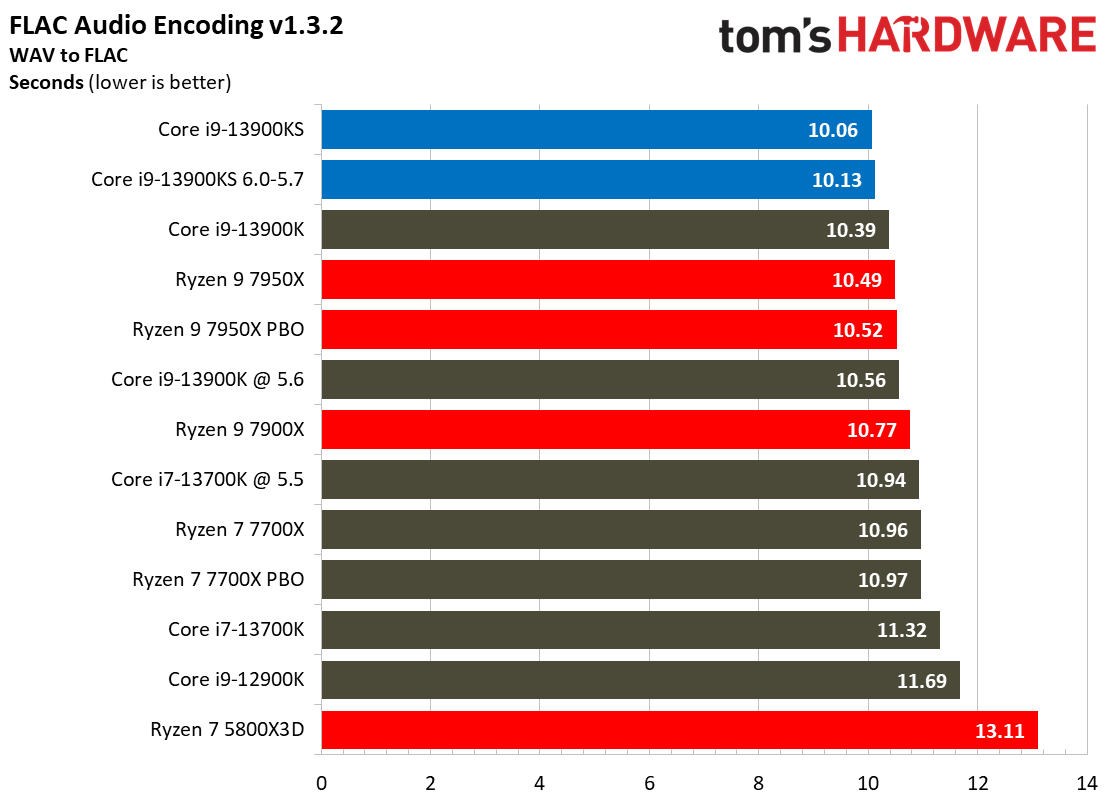
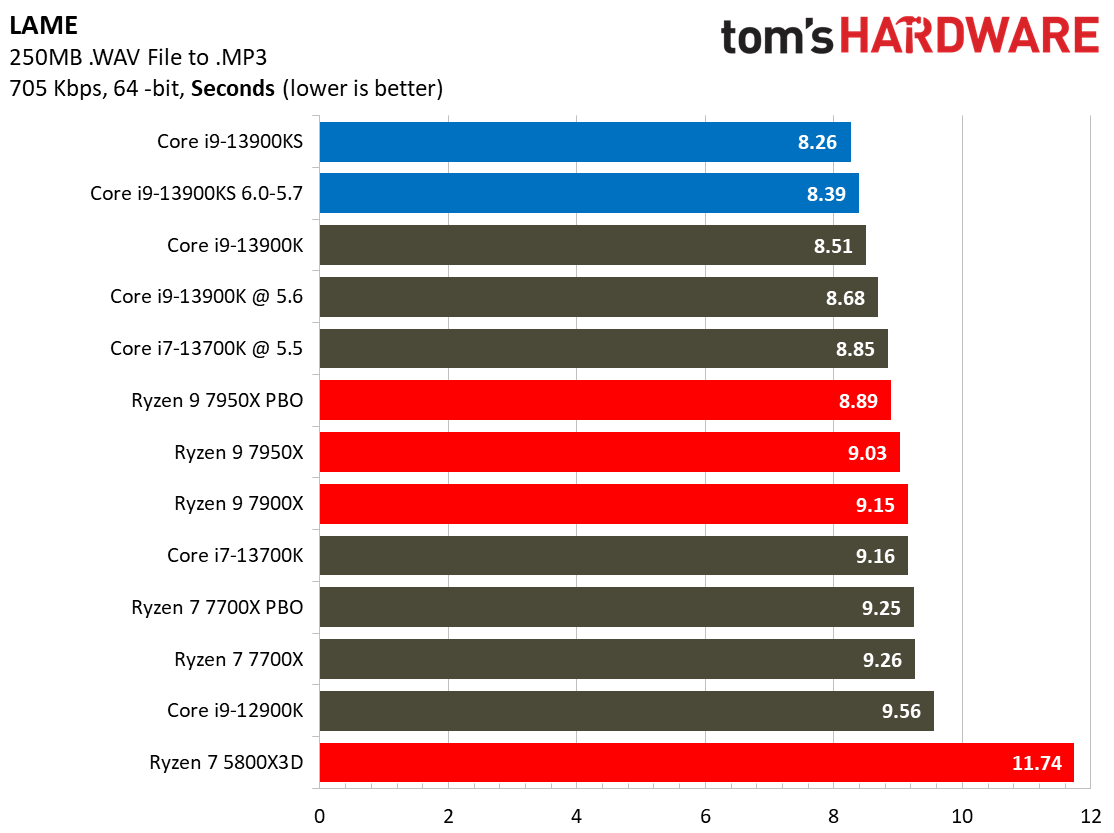
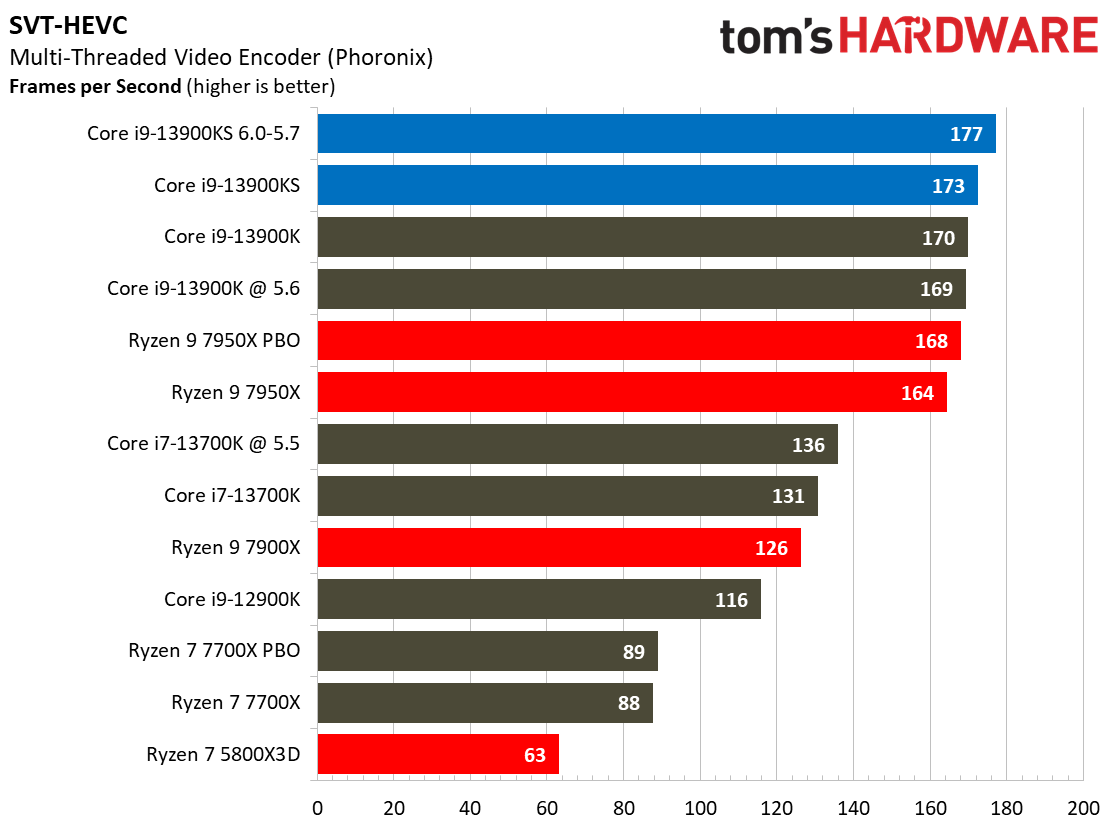
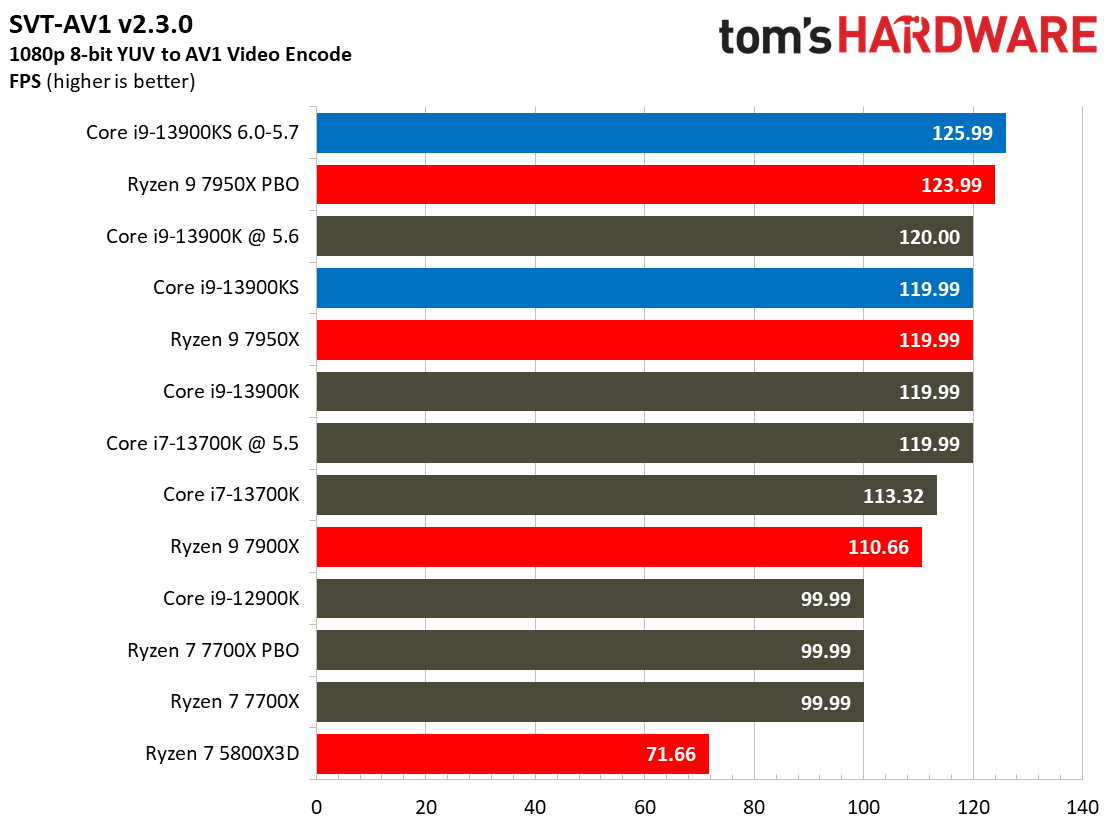
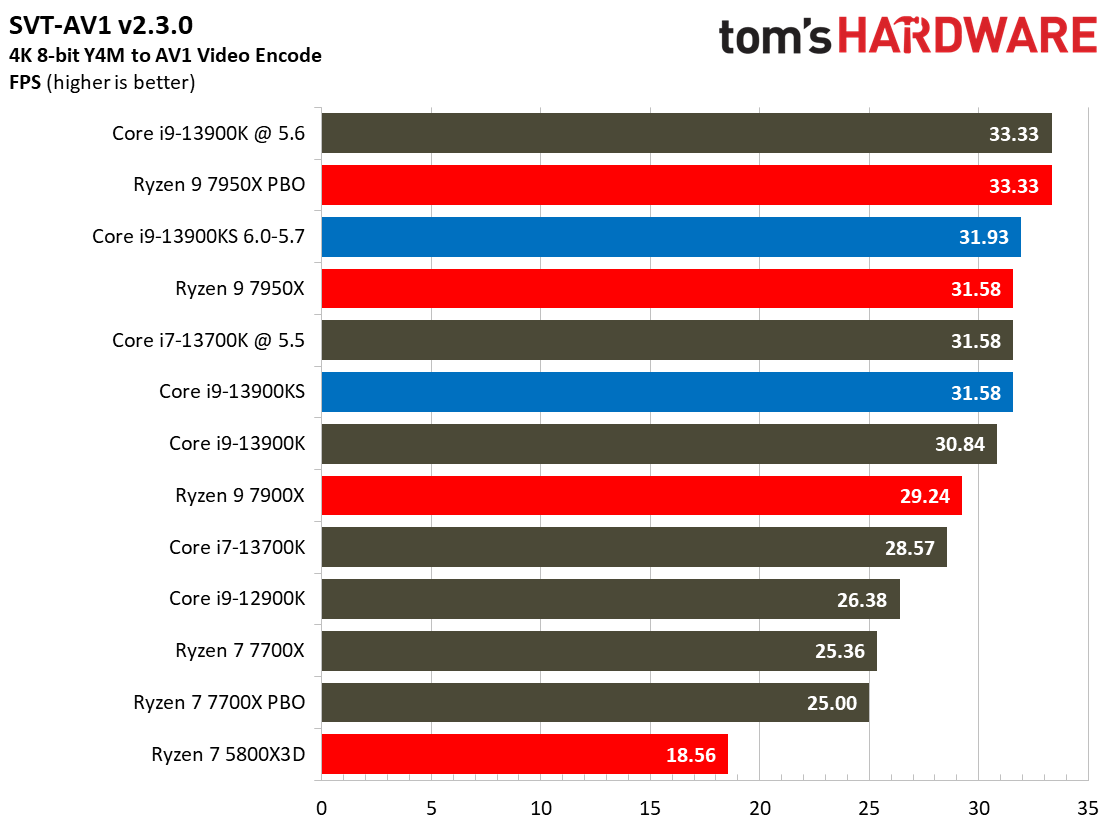
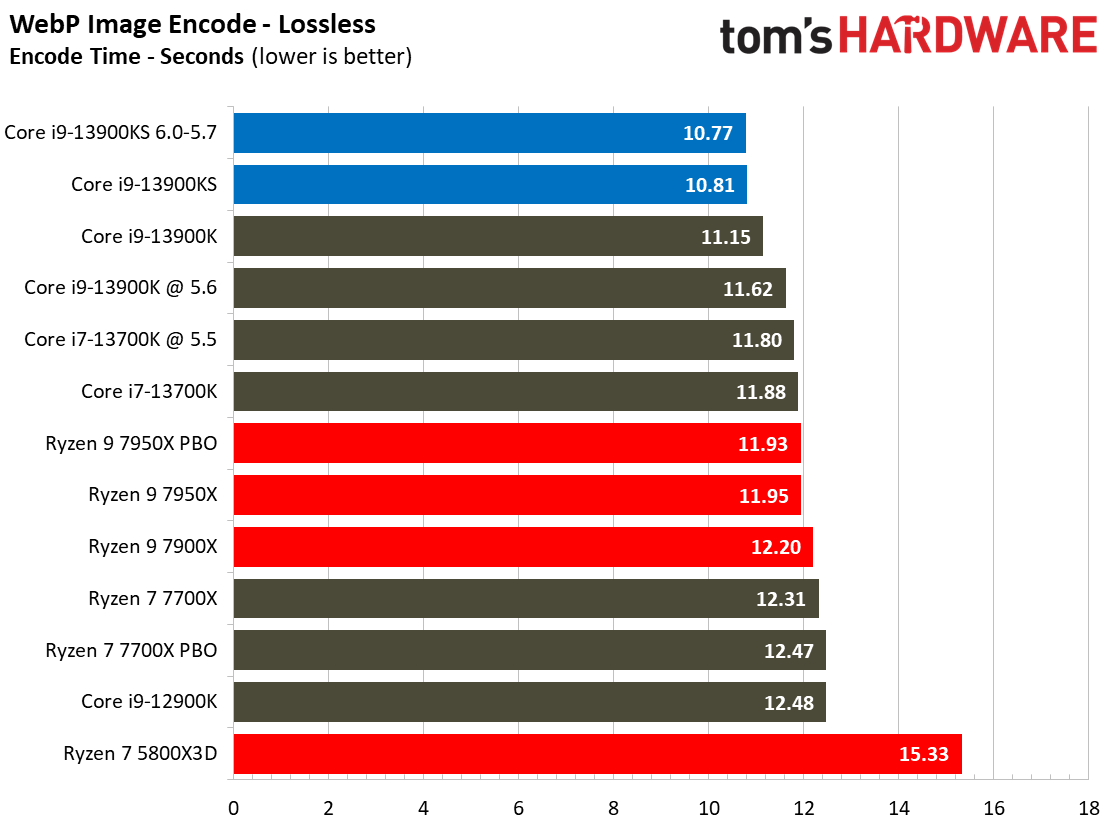
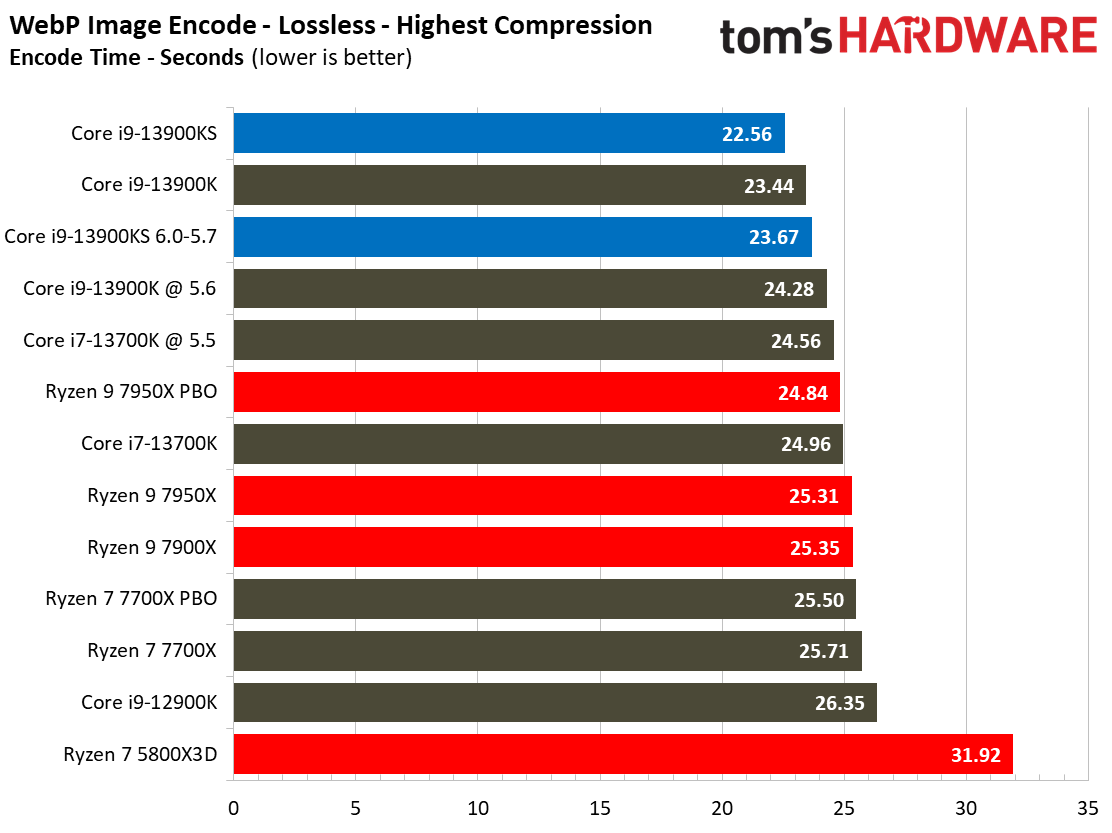
Most encoders tend to be either heavily threaded or almost exclusively single-threaded — it takes an agile chip to master both disciplines.
Adobe, Web Browsing, Office and Productivity on Intel Core i9-13900KS
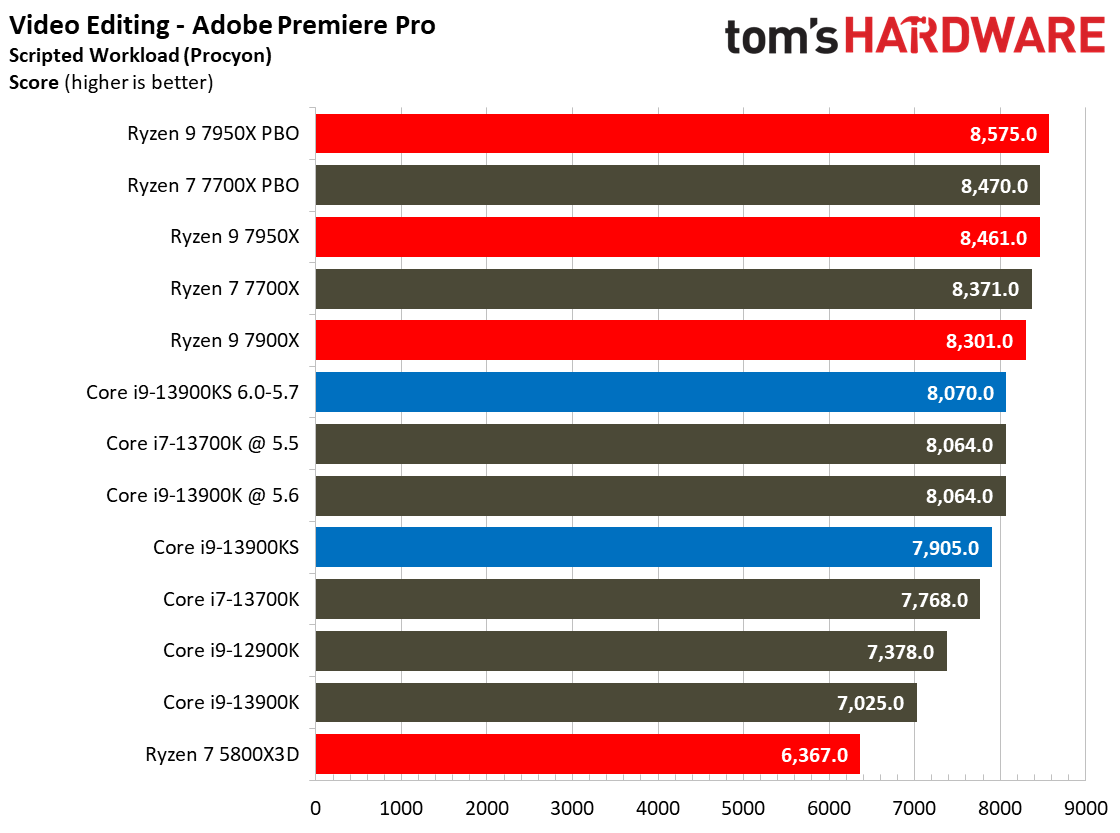
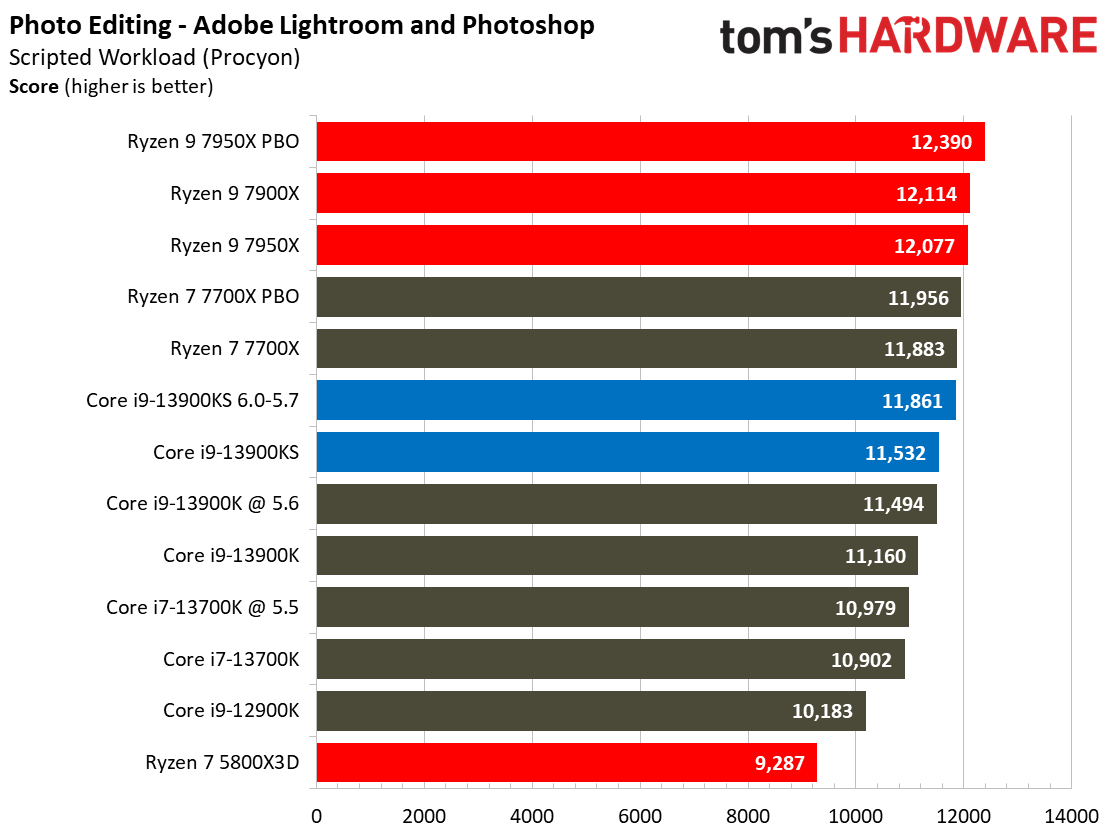
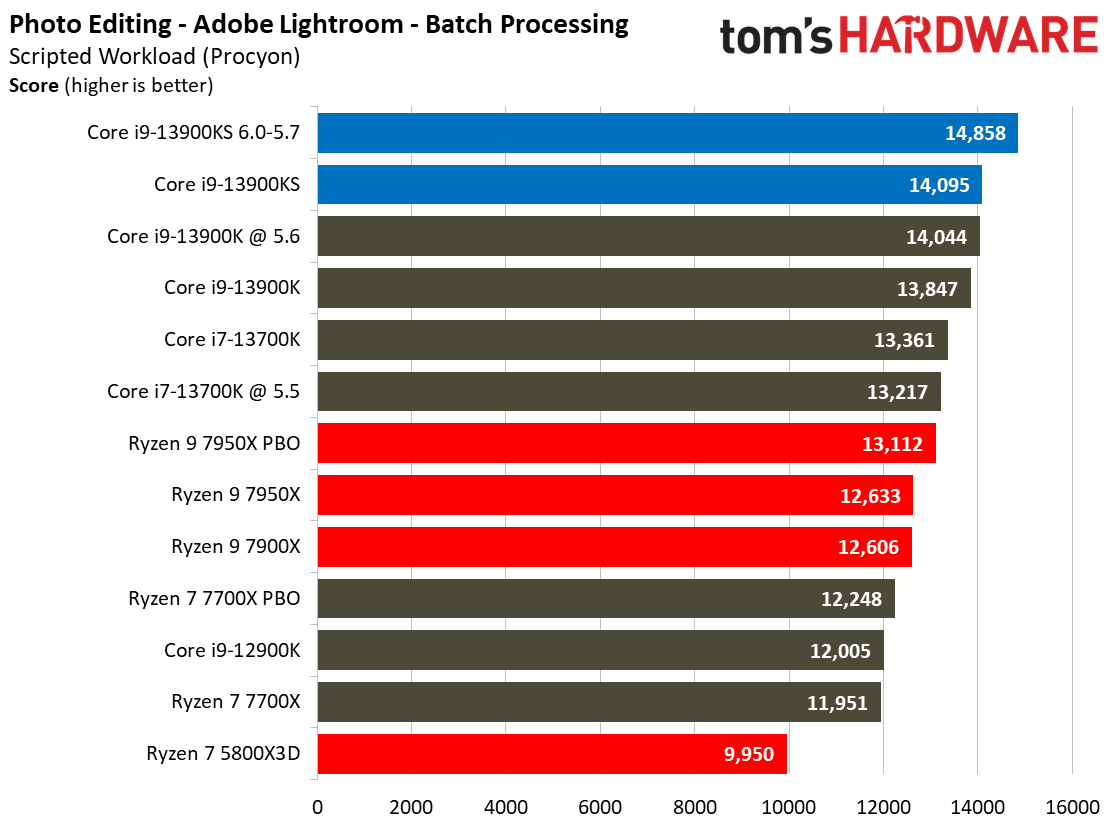
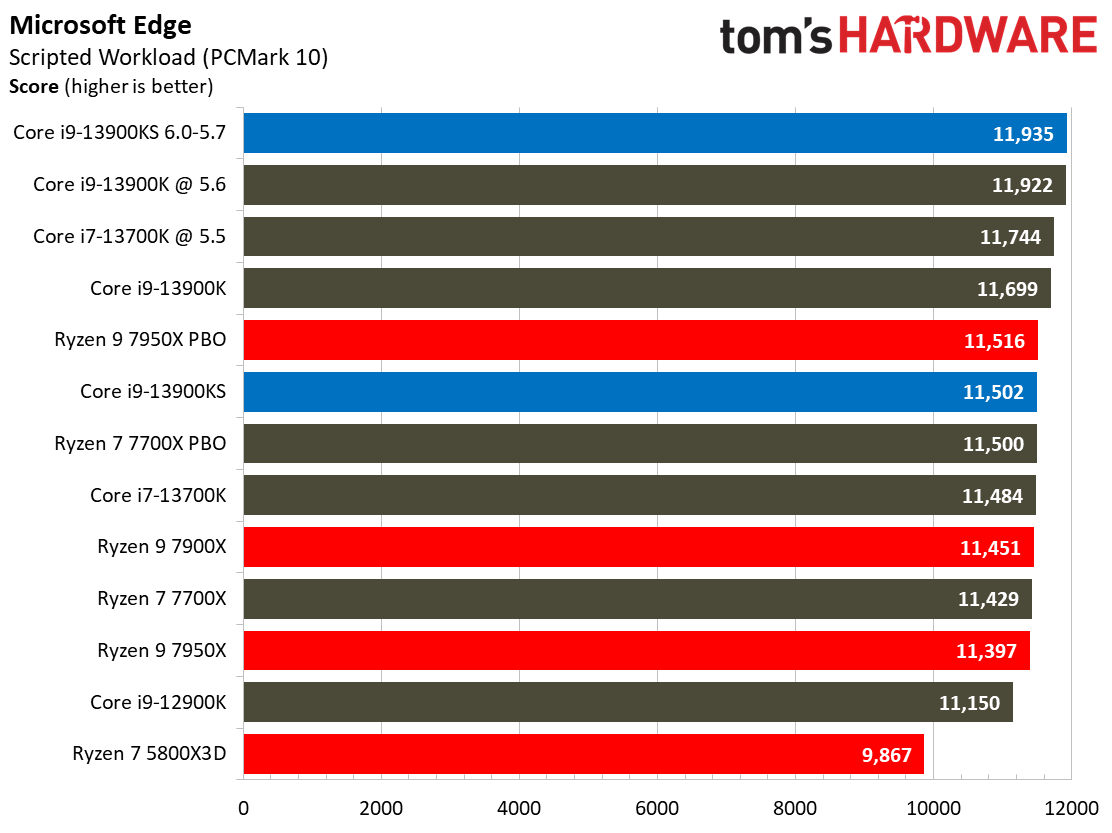
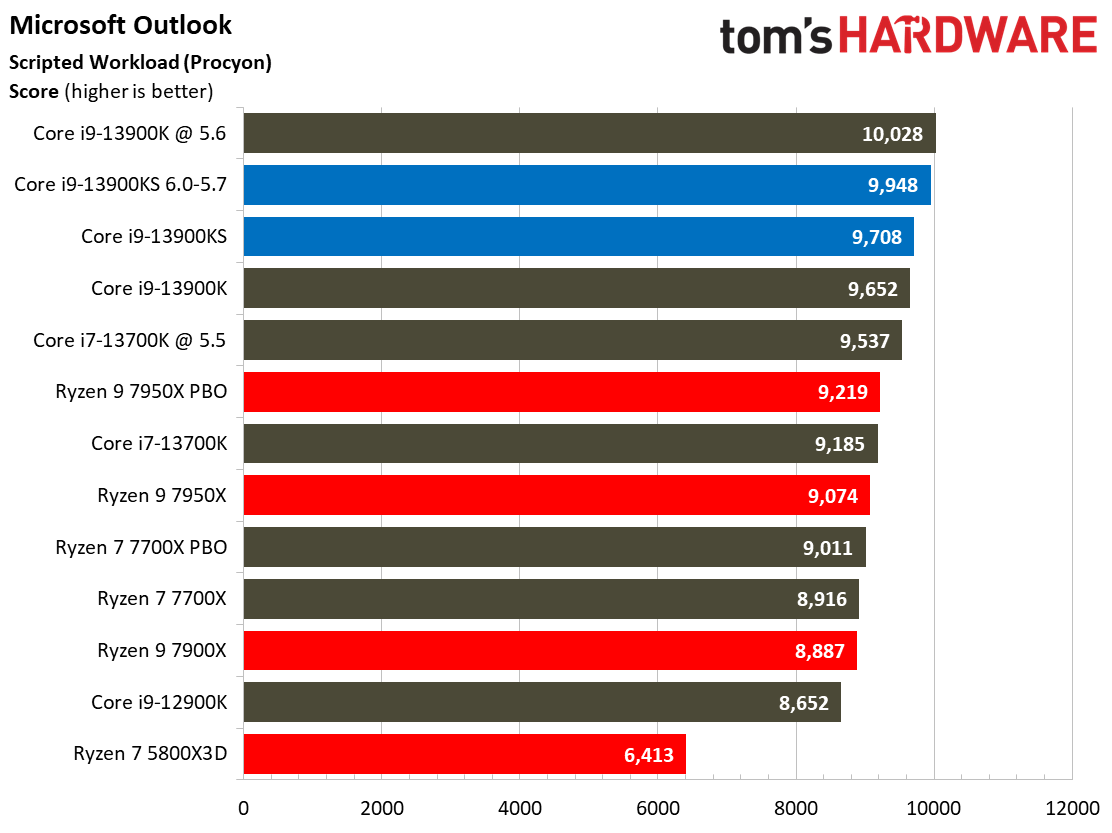
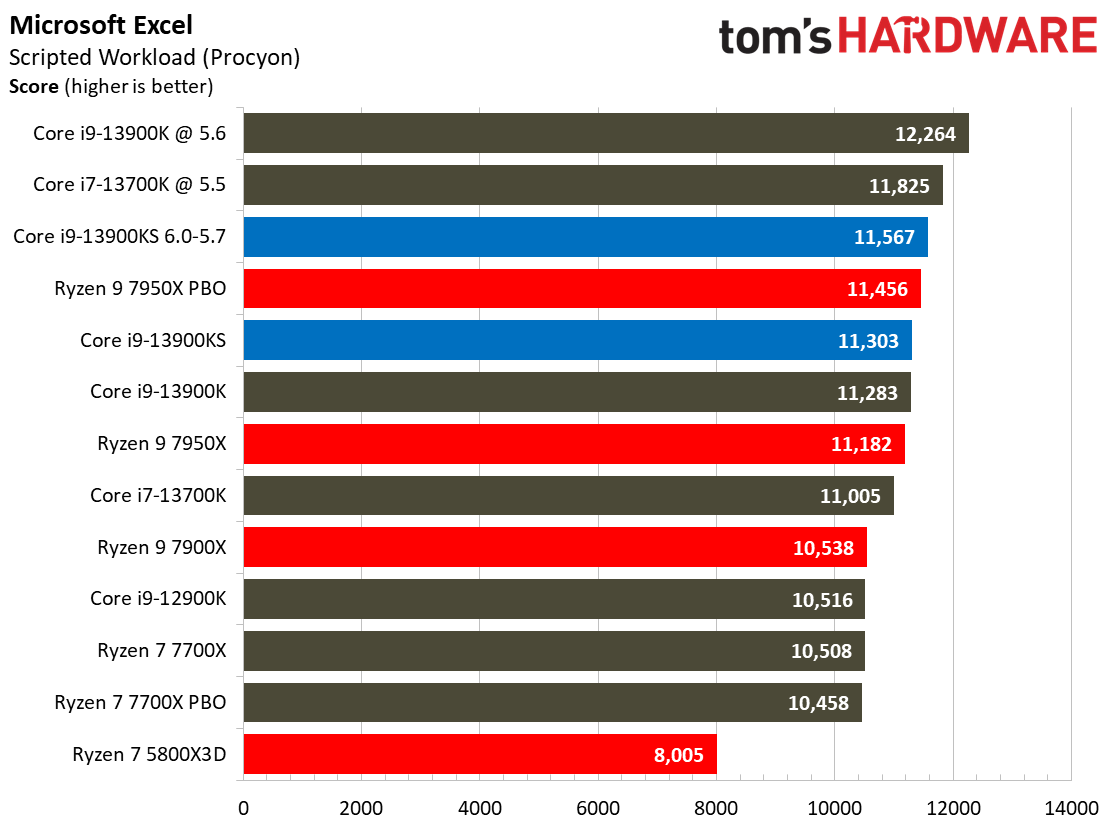
The ubiquitous web browser is one of the most frequently used applications. These latency-sensitive tests tend to be lightly threaded, so a fast response time is critical.
Get Tom's Hardware's best news and in-depth reviews, straight to your inbox.
Compilation, Compression, AI Chess Engines, AVX-512 Performance on Intel Core i9-13900KS
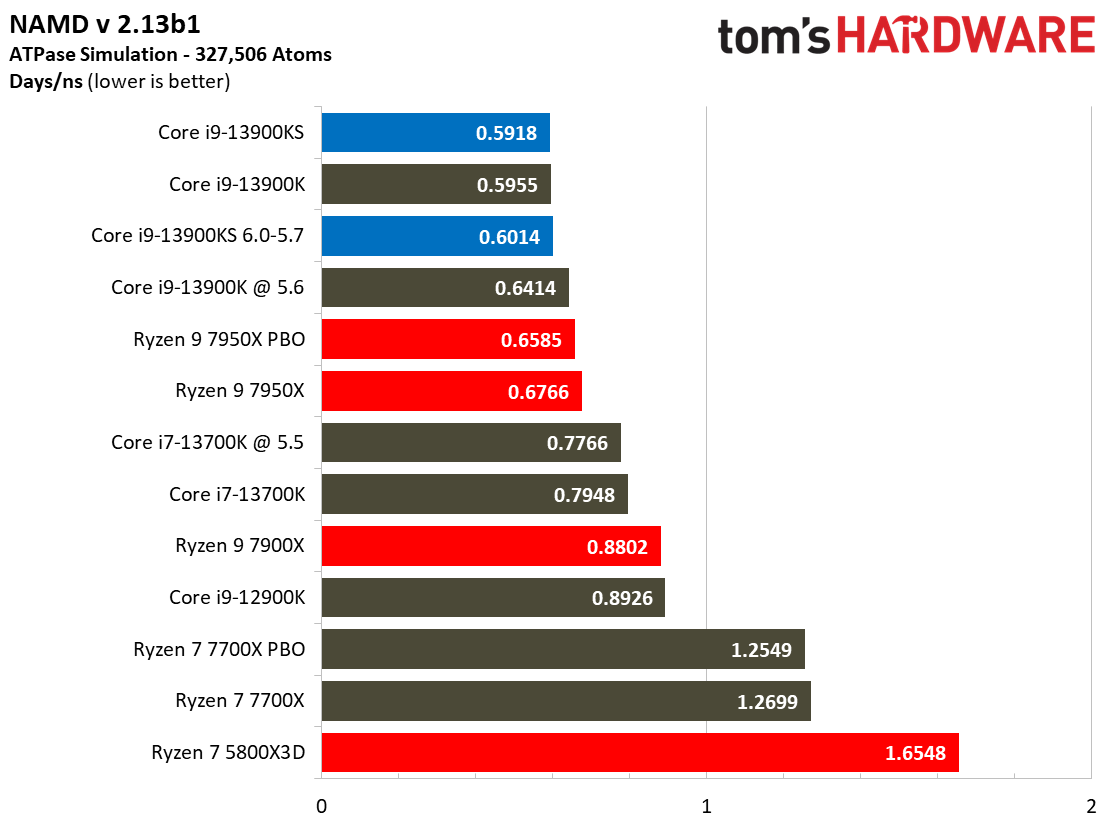
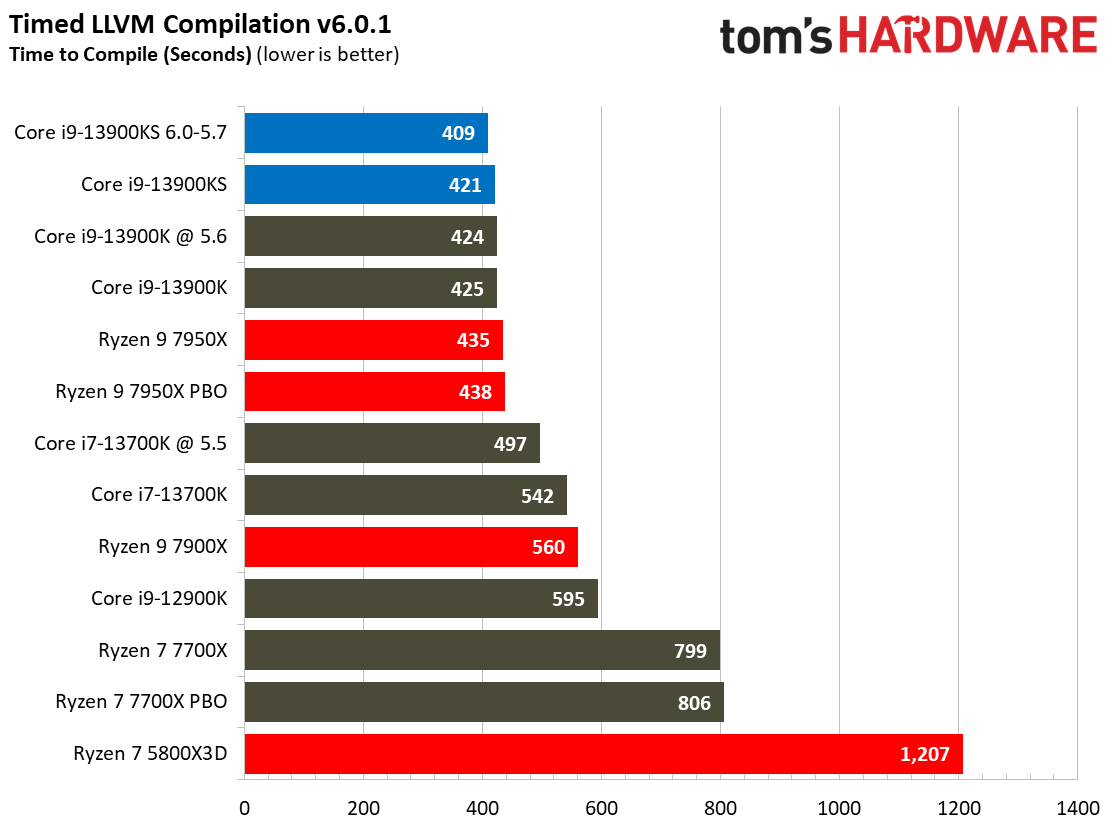
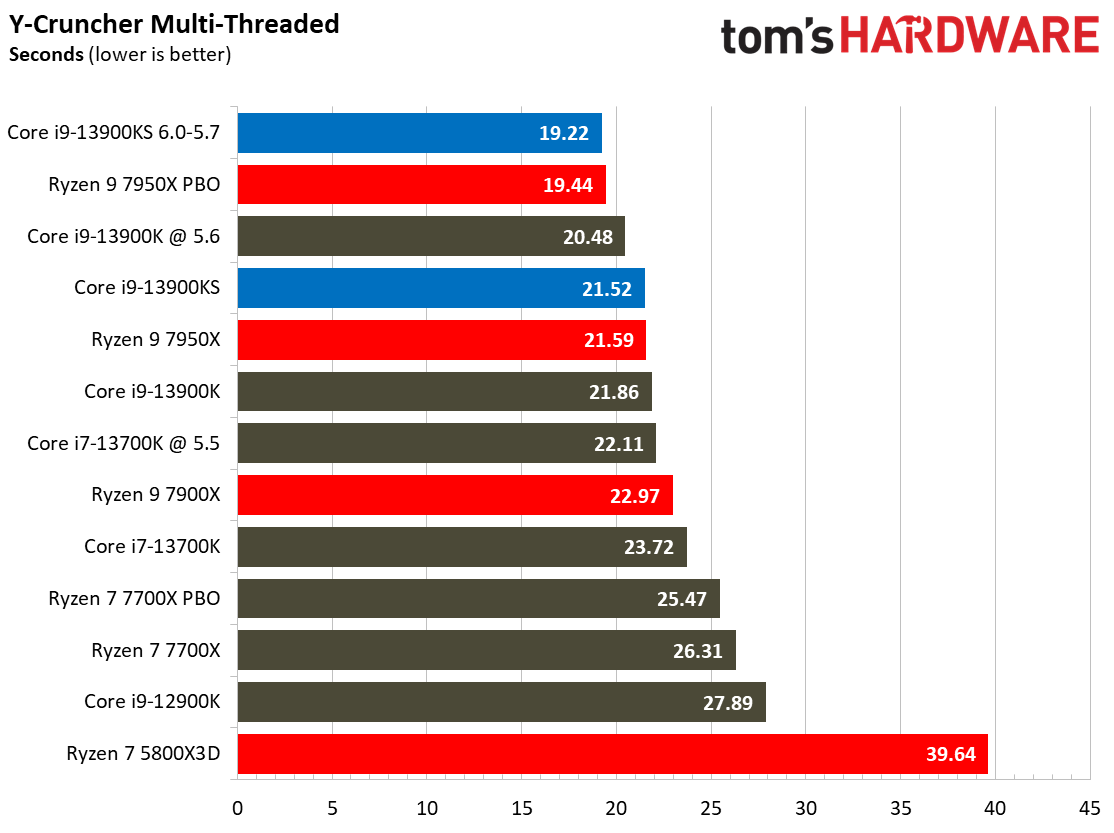
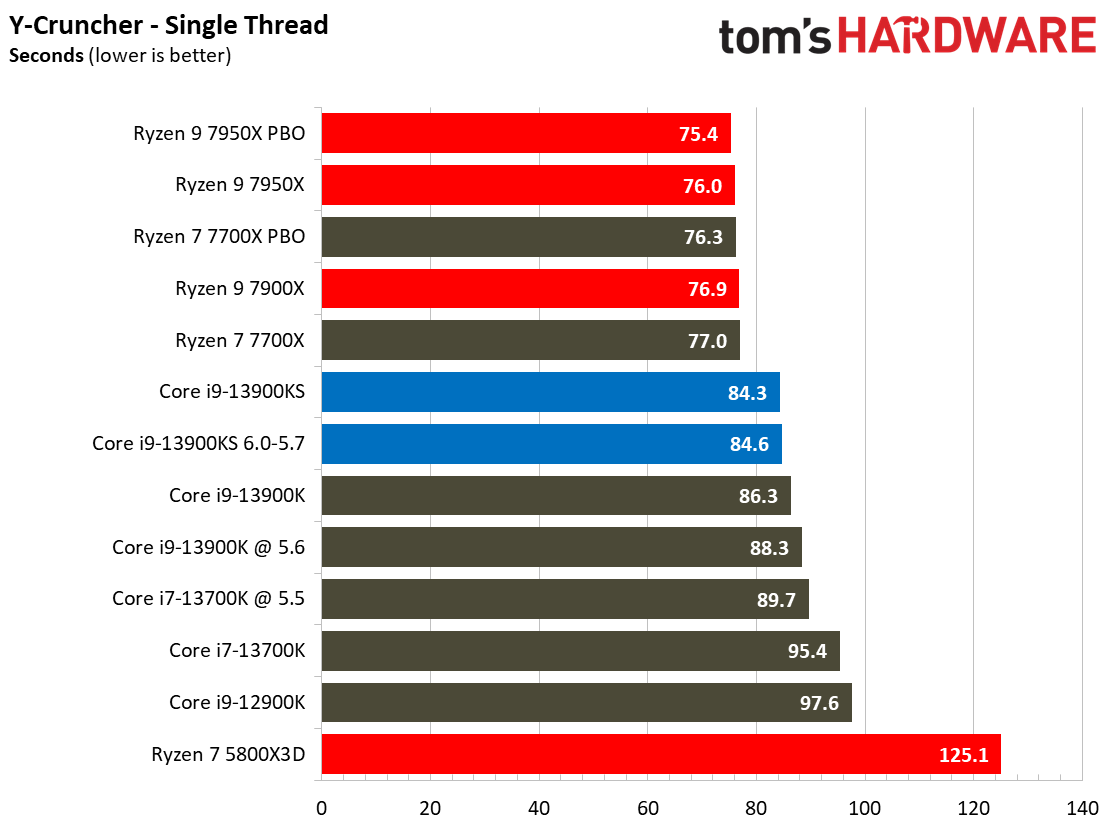
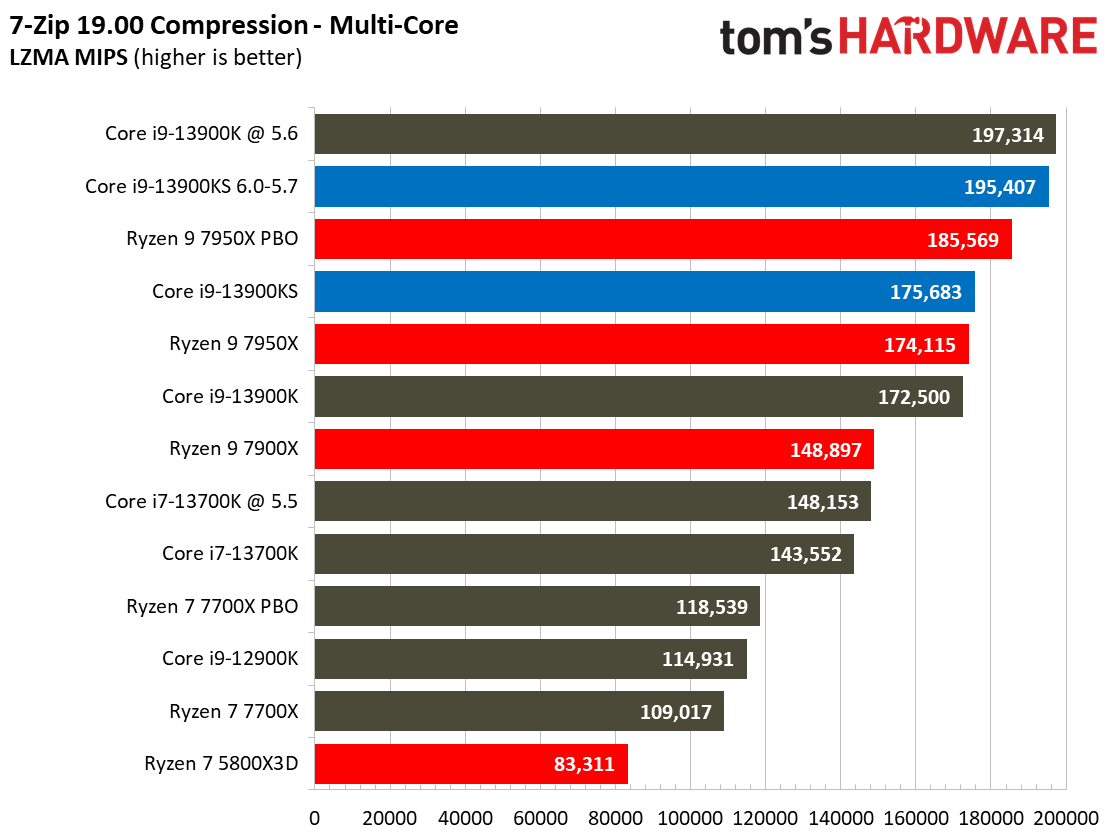
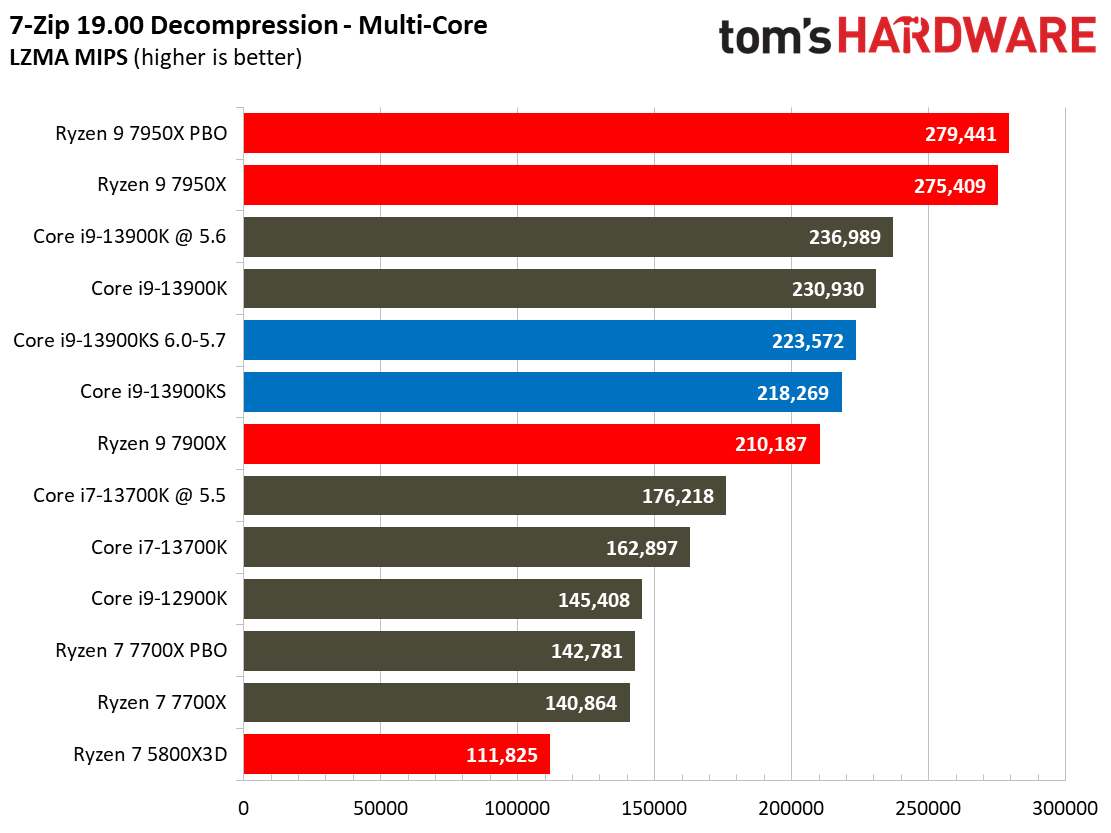
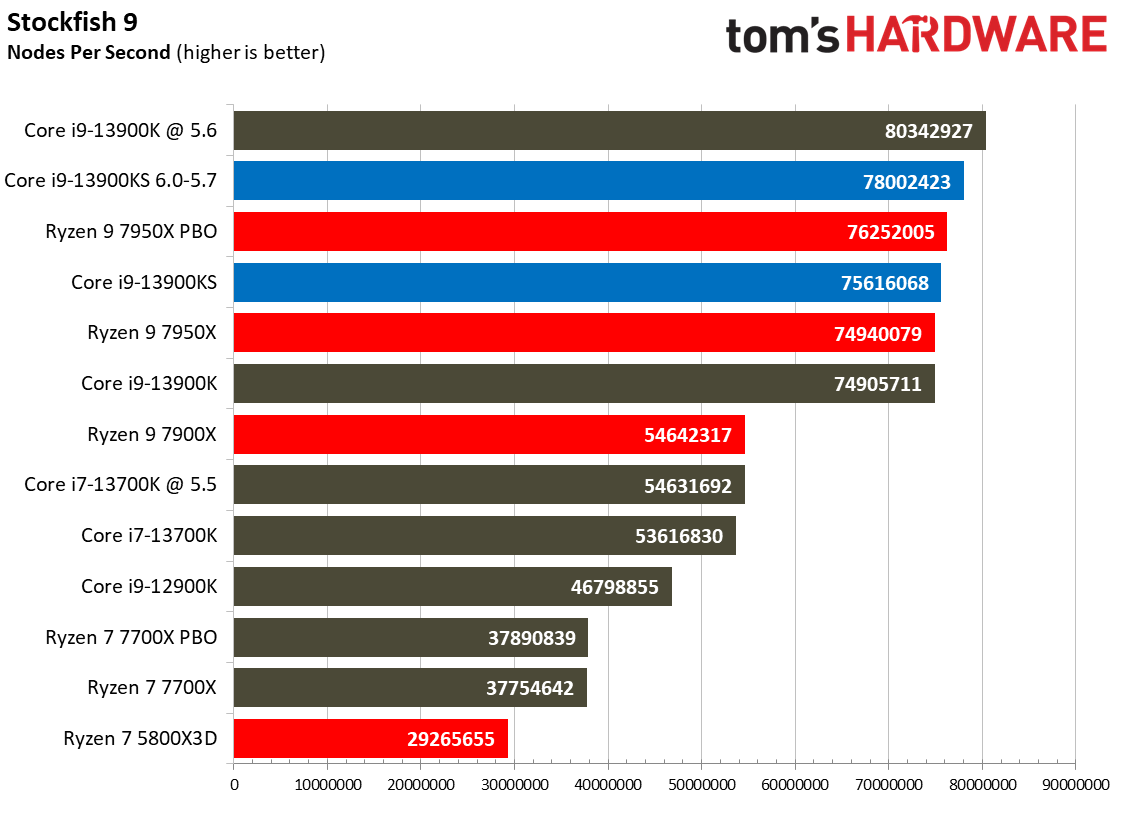
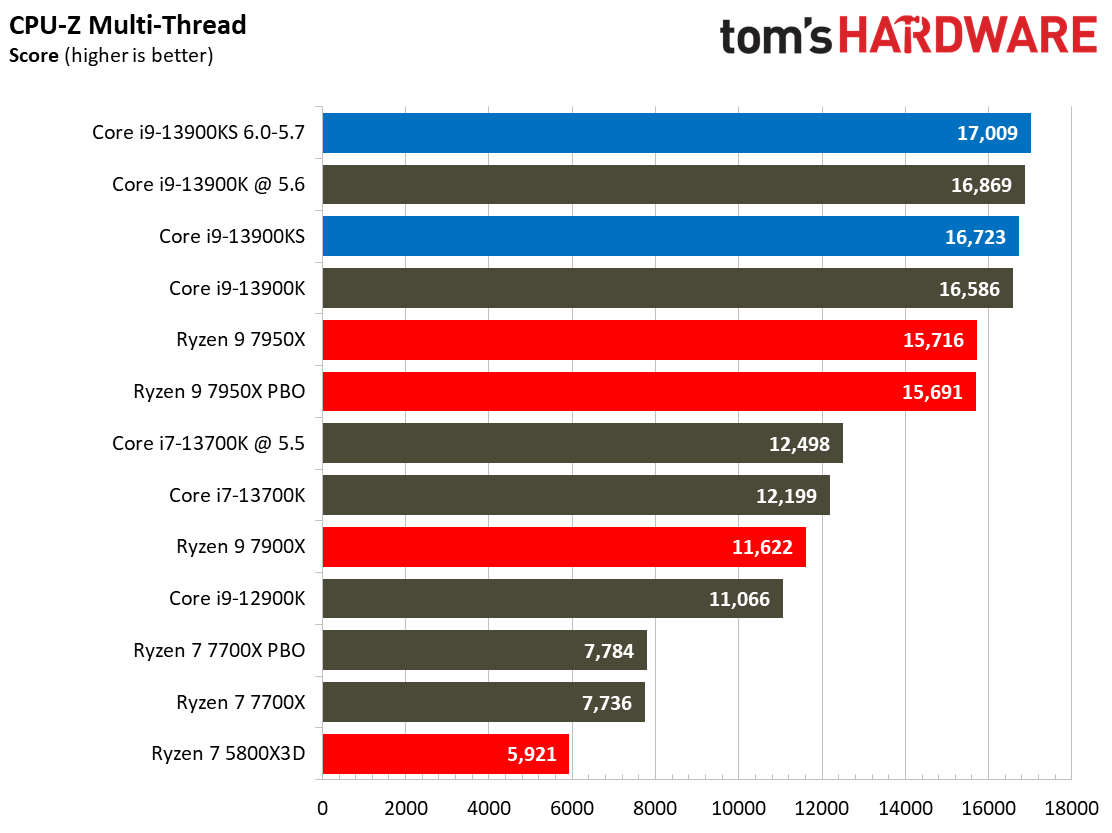
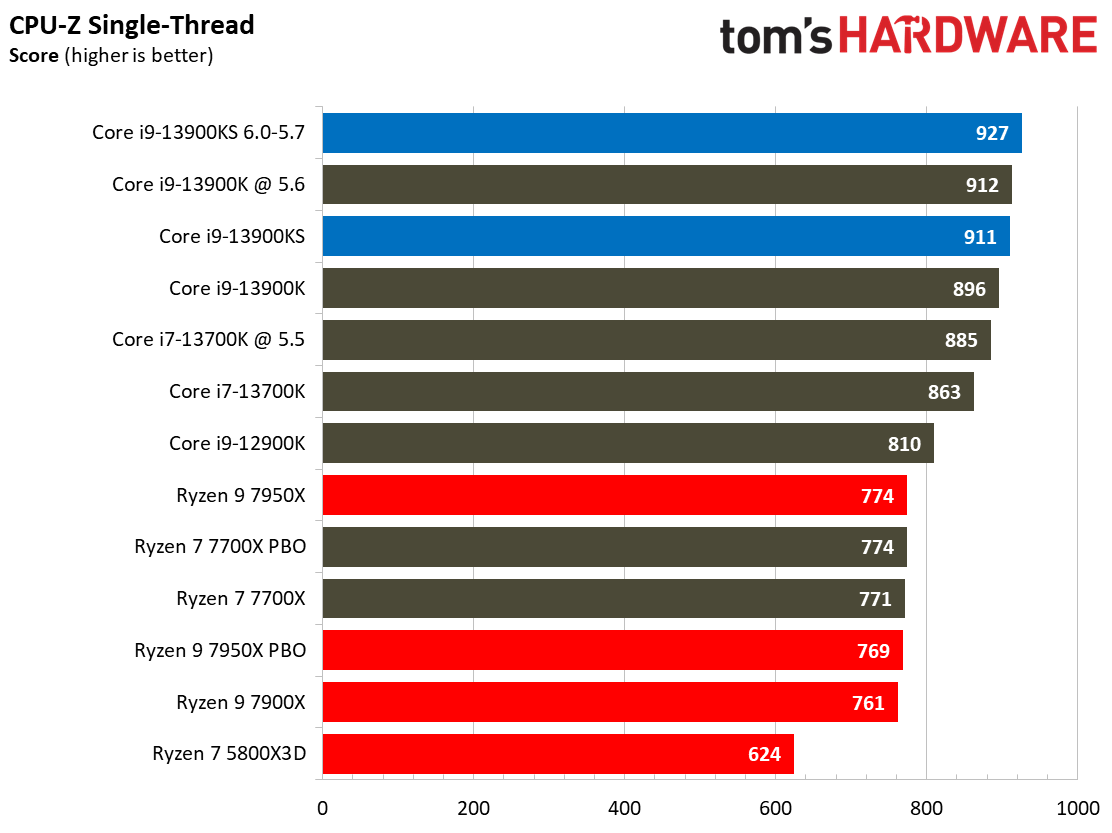
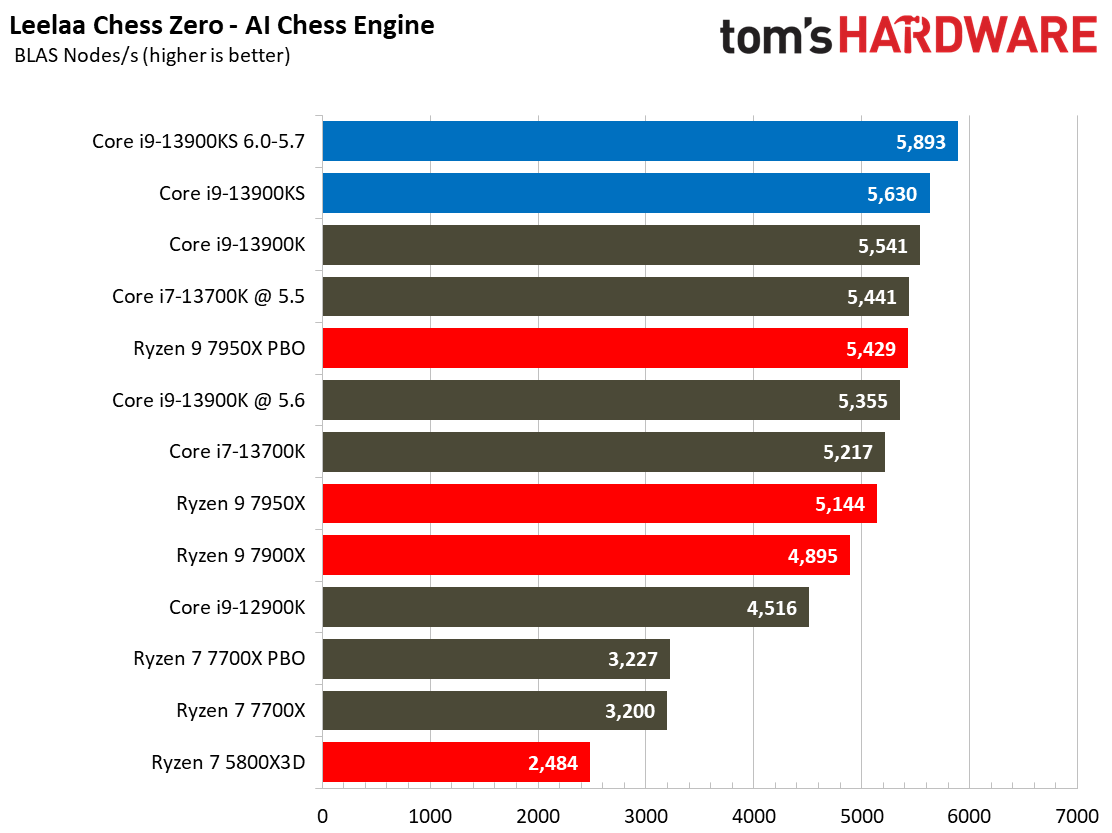
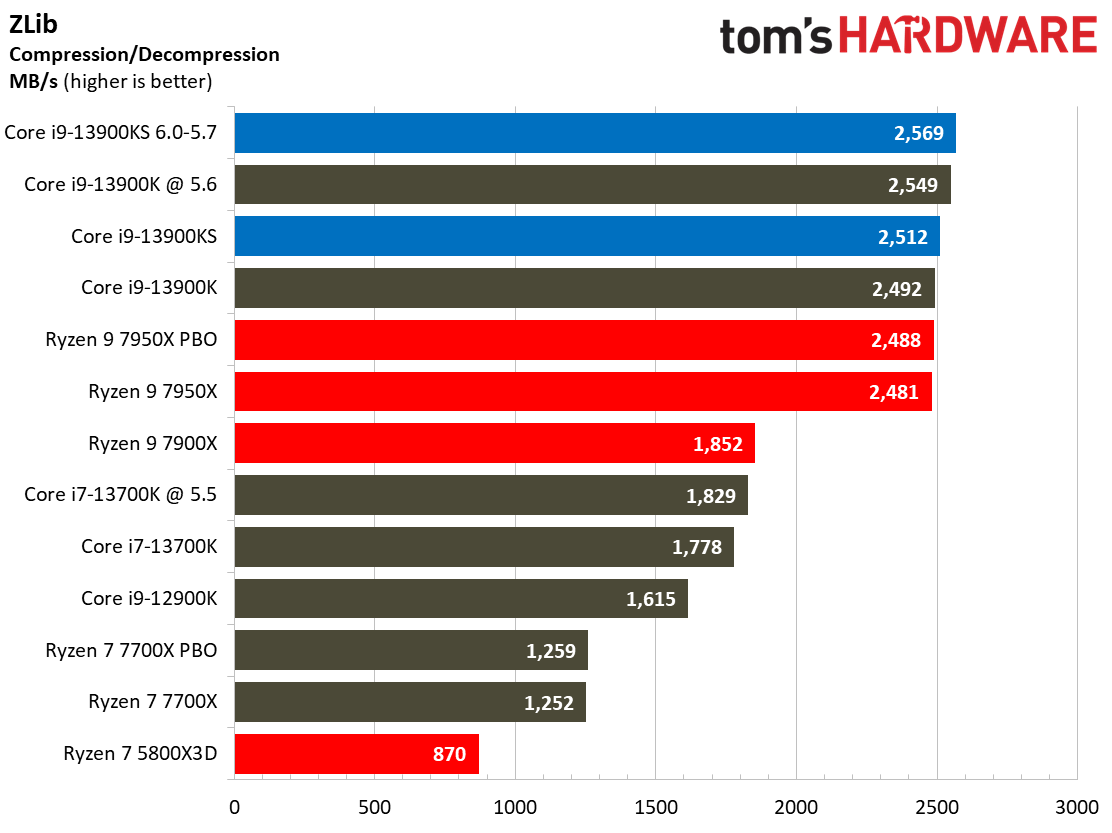
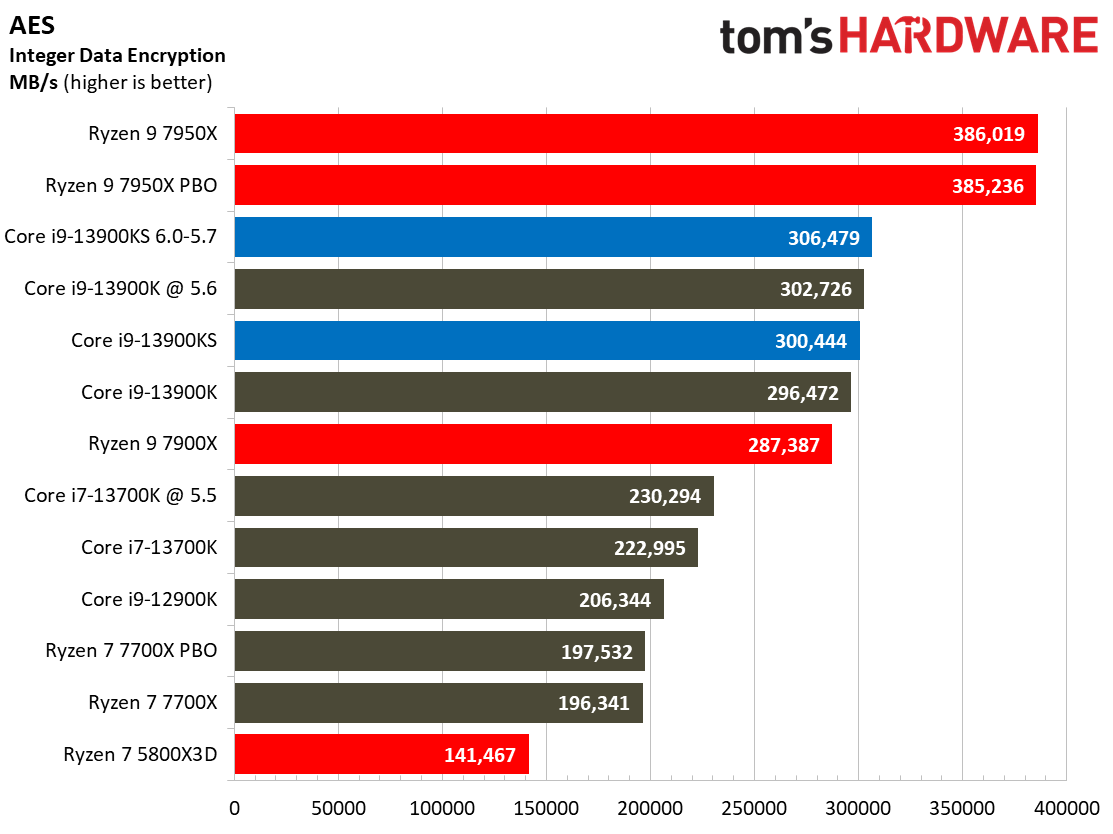
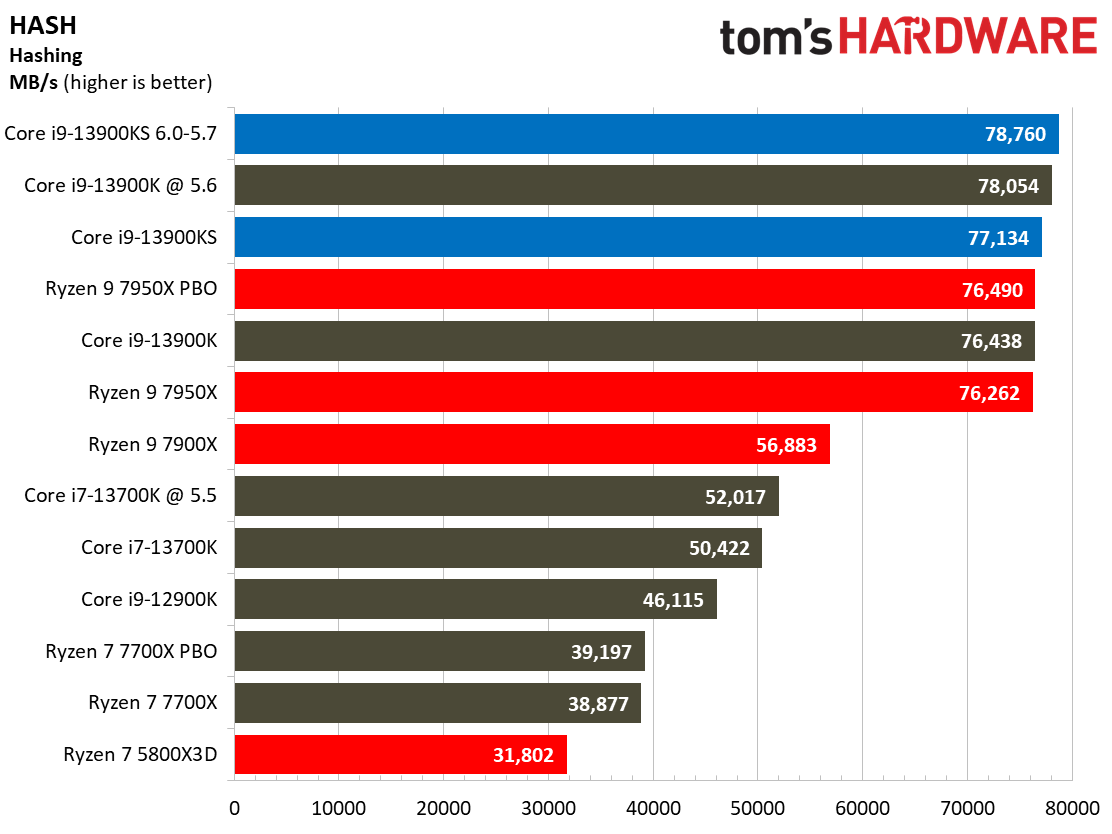
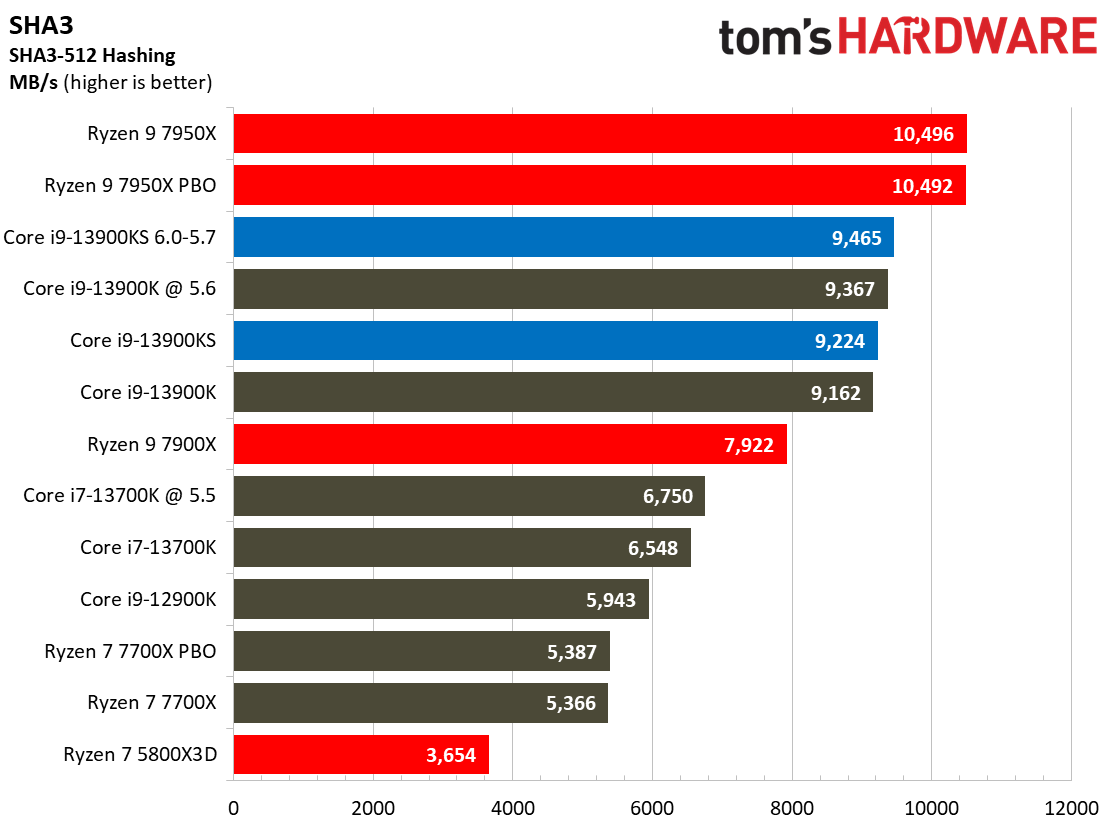
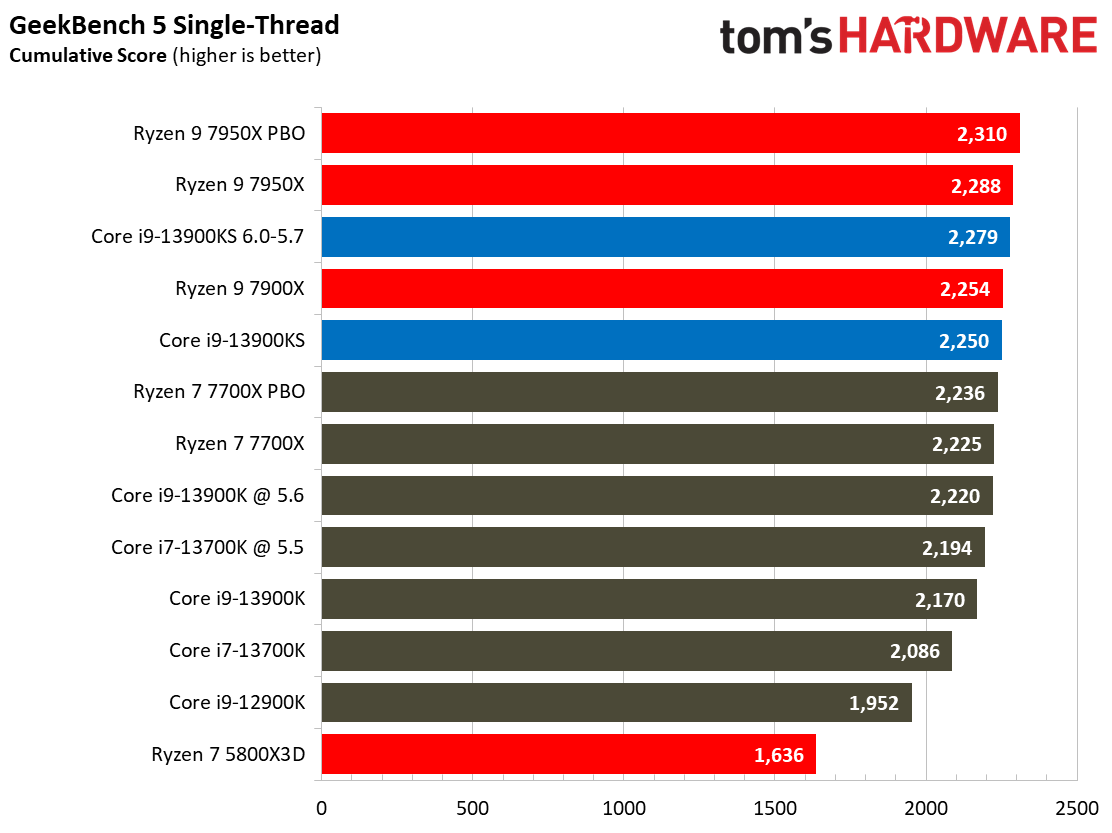
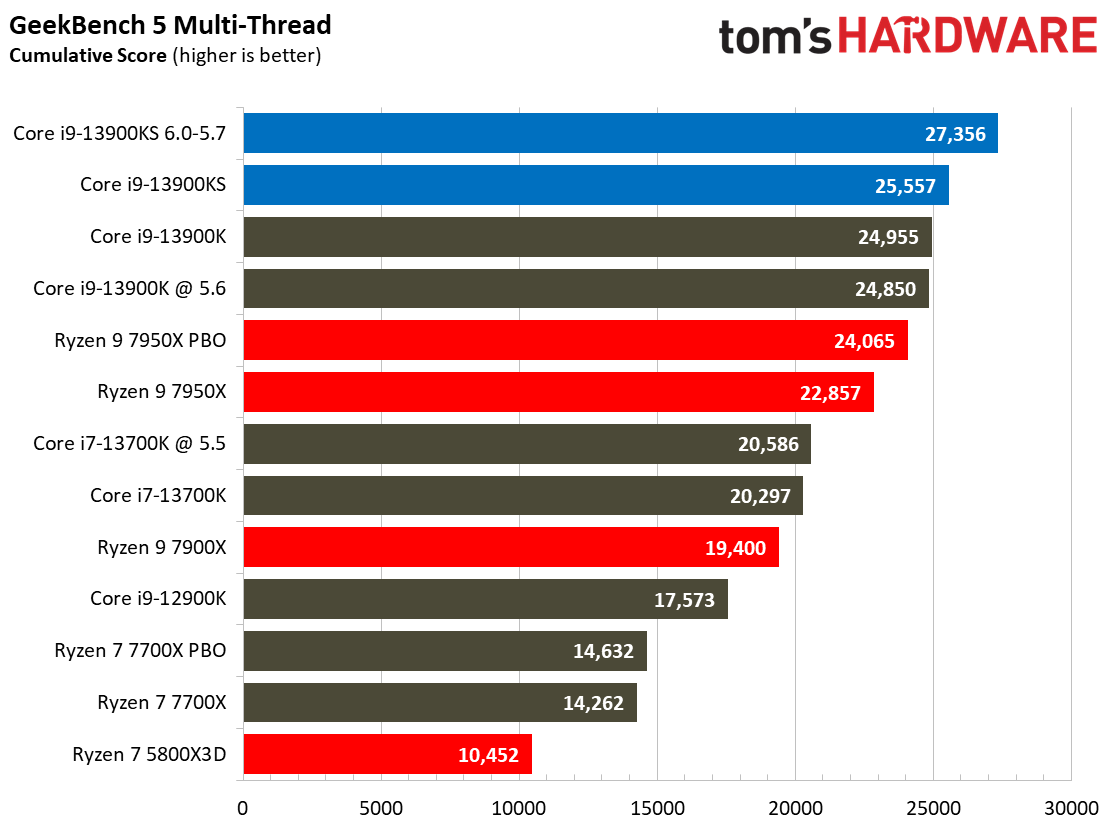
This selection of tests runs the gamut from the exceedingly branchy code in the LLVM compilation workload to the massively parallel molecular dynamics simulation code in NAMD to encryption and compression/decompression performance. Y-cruncher computes Pi with the AVX instruction set, making for an exceedingly demanding benchmark.
- MORE: AMD vs Intel
- MORE: Zen 4 Ryzen 7000 All We Know
- MORE: Raptor Lake All We Know
Current page: Productivity Benchmarks on Intel Core i9-13900KS
Prev Page Gaming Benchmarks on Intel Core i9-13900KS Next Page Paying the 6 GHz Tax
Paul Alcorn is the Editor-in-Chief for Tom's Hardware US. He also writes news and reviews on CPUs, storage, and enterprise hardware.
-
Brian D Smith Less 'overclocking' and more on 'underclocking' articles please.Reply
That would be helpful for the ever growing segment who does NOT need the testosterone rush of having the 'fastest' ... and wants more info on the logical underclocking to...well, do things like get the most out of a CPU without the burden of water-cooling, it's maintenance and chance of screwing up their expensive systems.
These CPU's and new systems would be flying off the shelves much faster than they are if only people did not have to take such measures for all the heat they generate. It's practically gone from being able to 'fry an egg' on a CPU to 'roasting a pig'. :( -
bit_user Seems like the article got a new comment thread, somehow. The original thread was:Reply
https://forums.tomshardware.com/threads/intel-core-i9-13900ks-review-the-worlds-first-6-ghz-320w-cpu.3794179/
I'm guessing because it had previously been classified as a News article and is now tagged as a Review. -
bit_user Thanks for the thorough review, @PaulAlcorn !Reply
Some of the benchmarks are so oddly lopsided in Intel's favor that I think it'd be interesting to run them in a VM and trap the CPUID instruction. Then, have it mis-report the CPU as a Genuine Intel of some Skylake-X vintage (because it also had AVX-512) and see if you get better performance than the default behavior.
For the benchmarks that favor AMD, you could try disabling AVX-512, to see if that's why.
Whatever the reason, it would be really interesting to know why some benchmarks so heavily favor one CPU family or another. I'd bet AMD and Intel are both doing this sort of competitive analysis, in their respective labs. -
letmepicyou Reply
Well, we've seen the video card manufacturers code drivers to give inflated benchmark results in the past. Is it so outlandish to think Intel or AMD might make alterations in their microcode or architecture in favor of high benchmark scores vs being overall faster?bit_user said:Thanks for the thorough review, @PaulAlcorn !
Some of the benchmarks are so oddly lopsided in Intel's favor that I think it'd be interesting to run them in a VM and trap the CPUID instruction. Then, have it mis-report the CPU as a Genuine Intel of some Skylake-X vintage (because it also had AVX-512) and see if you get better performance than the default behavior.
For the benchmarks that favor AMD, you could try disabling AVX-512, to see if that's why.
Whatever the reason, it would be really interesting to know why some benchmarks so heavily favor one CPU family or another. I'd bet AMD and Intel are both doing this sort of competitive analysis, in their respective labs. -
bit_user Reply
Optimizing the microcode for specific benchmarks is risky, because you don't know that it won't blow up in your face with some other workload that becomes popular in the next year.letmepicyou said:Is it so outlandish to think Intel or AMD might make alterations in their microcode or architecture in favor of high benchmark scores vs being overall faster?
That said, I was wondering whether AMD tuned its branch predictor on things like 7-zip's decompression algorithm, or if it just happens to work especially well on it.
To be clear, what I'm most concerned about is that some software is rigged to work well on Intel CPUs (or AMD, though less likely). Intel has done this before, in some of their 1st party libraries (Math Kernel Library, IIRC). And yes, we've seen games use libraries that effectively do the same thing for GPUs (who can forget when Nvidia had a big lead in tessellation performance?). -
hotaru251 Intel: "We need a faster chip"Reply
eng 1: what if we make it hotter & uncontrollably force power into it?
eng 2: what if we try soemthign else that doesnt involve using guzzling power as answer?
intel: eng1 you're a genius! -
bit_user Reply
Part of the problem might be in Intel's manufacturing node. That could limit the solution space for delivering competitive performance, especially when it also needs to be profitable. Recall that Intel 7 not EUV, while TSMC has been using EUV since N7.hotaru251 said:Intel: "We need a faster chip"
eng 1: what if we make it hotter & uncontrollably force power into it?
eng 2: what if we try soemthign else that doesnt involve using guzzling power as answer?
intel: eng1 you're a genius! -
froggx Reply
Intel has at least once in the past disabled the ability to undervolt. Look up the "plundervolt" vulnerability. Basically around 7th and 8th gen CPUs it was discovered that under very specific conditions that most users would never encounter, undervolting allowed some kind of exploit. The solution: push a windows update preventing CPU from being set below stock voltage. I have a kaby lake in a laptop that was undervolted a good 0.2v, knocked a good 10°C off temps. One day it started running hotter and surprise! I can still overvolt it just fine though, I guess that's what matters for laptops. Essentially, as useful as undervolting can be, Intel doesn't see it as something worthwhile compared to "security."Brian D Smith said:Less 'overclocking' and more on 'underclocking' articles please.
That would be helpful for the ever growing segment who does NOT need the testosterone rush of having the 'fastest' ... and wants more info on the logical underclocking to...well, do things like get the most out of a CPU without the burden of water-cooling, it's maintenance and chance of screwing up their expensive systems.
These CPU's and new systems would be flying off the shelves much faster than they are if only people did not have to take such measures for all the heat they generate. It's practically gone from being able to 'fry an egg' on a CPU to 'roasting a pig'. :( -
TerryLaze Reply
Being able to withstand higher extremes is a sign of better manufacturing not worse.bit_user said:Part of the problem might be in Intel's manufacturing node. That could limit the solution space for delivering competitive performance, especially when it also needs to be profitable. Recall that Intel 7 not EUV, while TSMC has been using EUV since N7.
Intel CPUs can take a huge amount of W and also of Vcore without blowing up, these are signs of quality.
TSMC getting better is how AMD was able to double the W in this generation.
You don't have to push it just because it is pushable.
jv3uZ5VlnngView: https://www.youtube.com/watch?v=jv3uZ5Vlnng